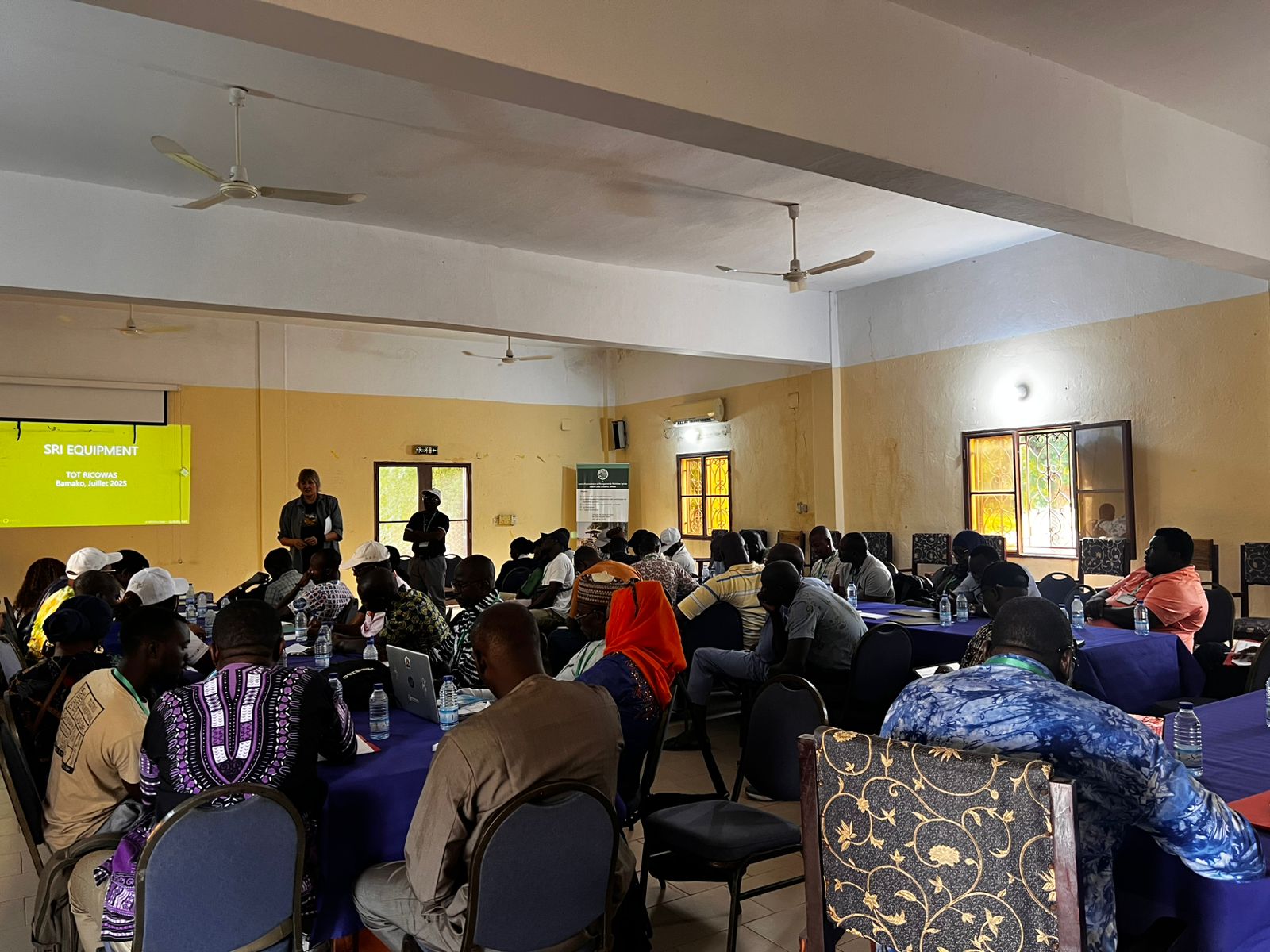
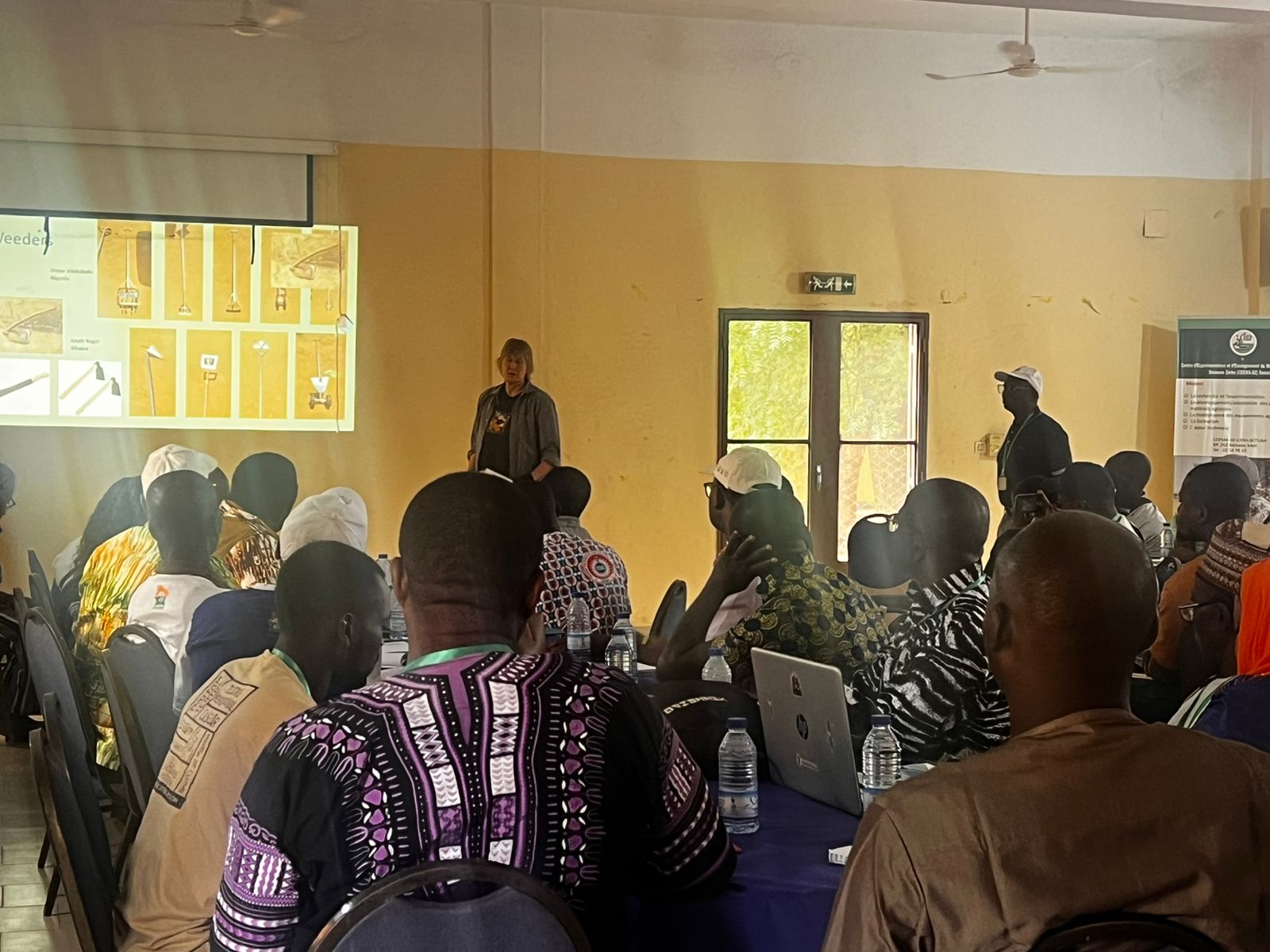
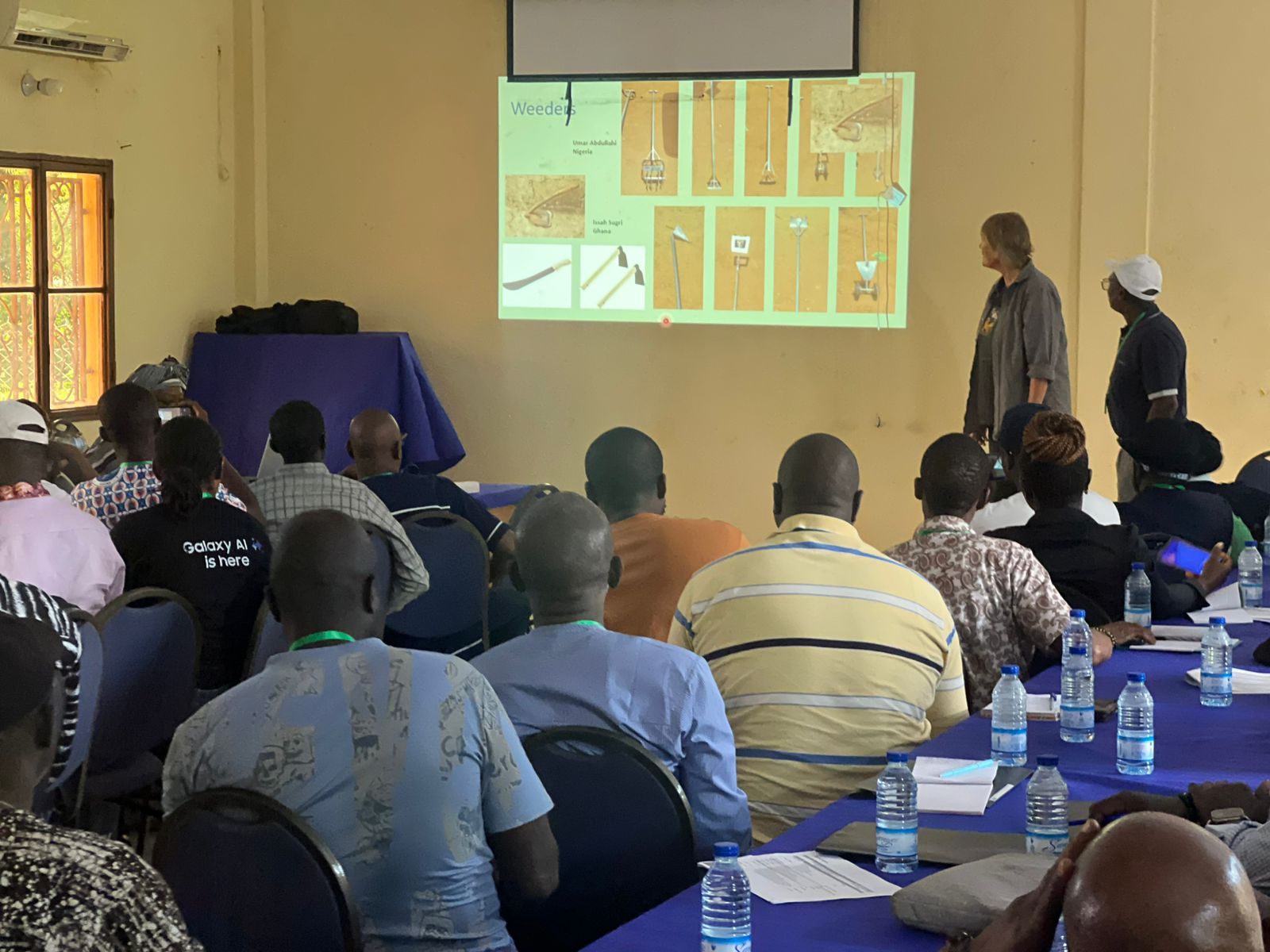
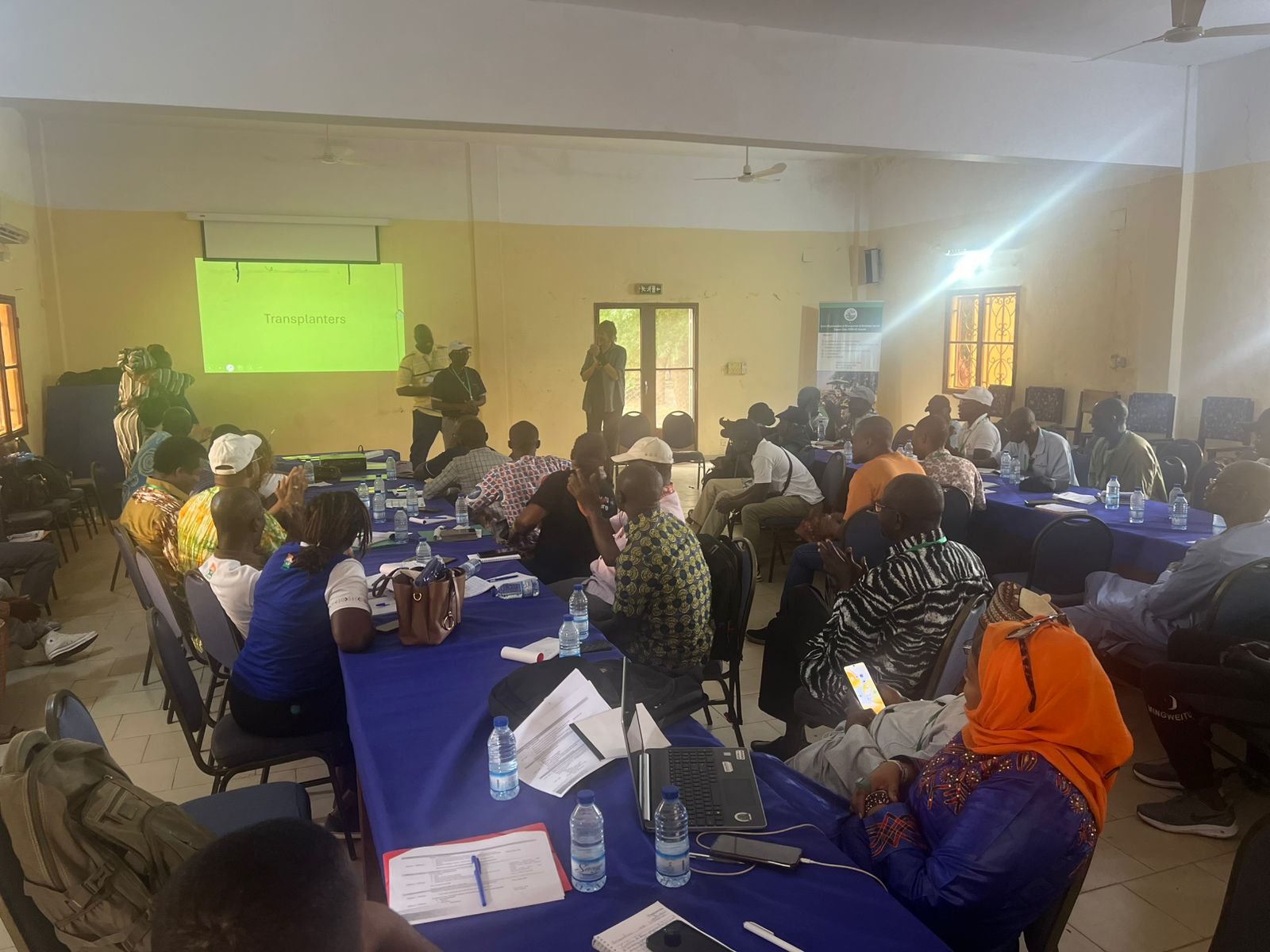
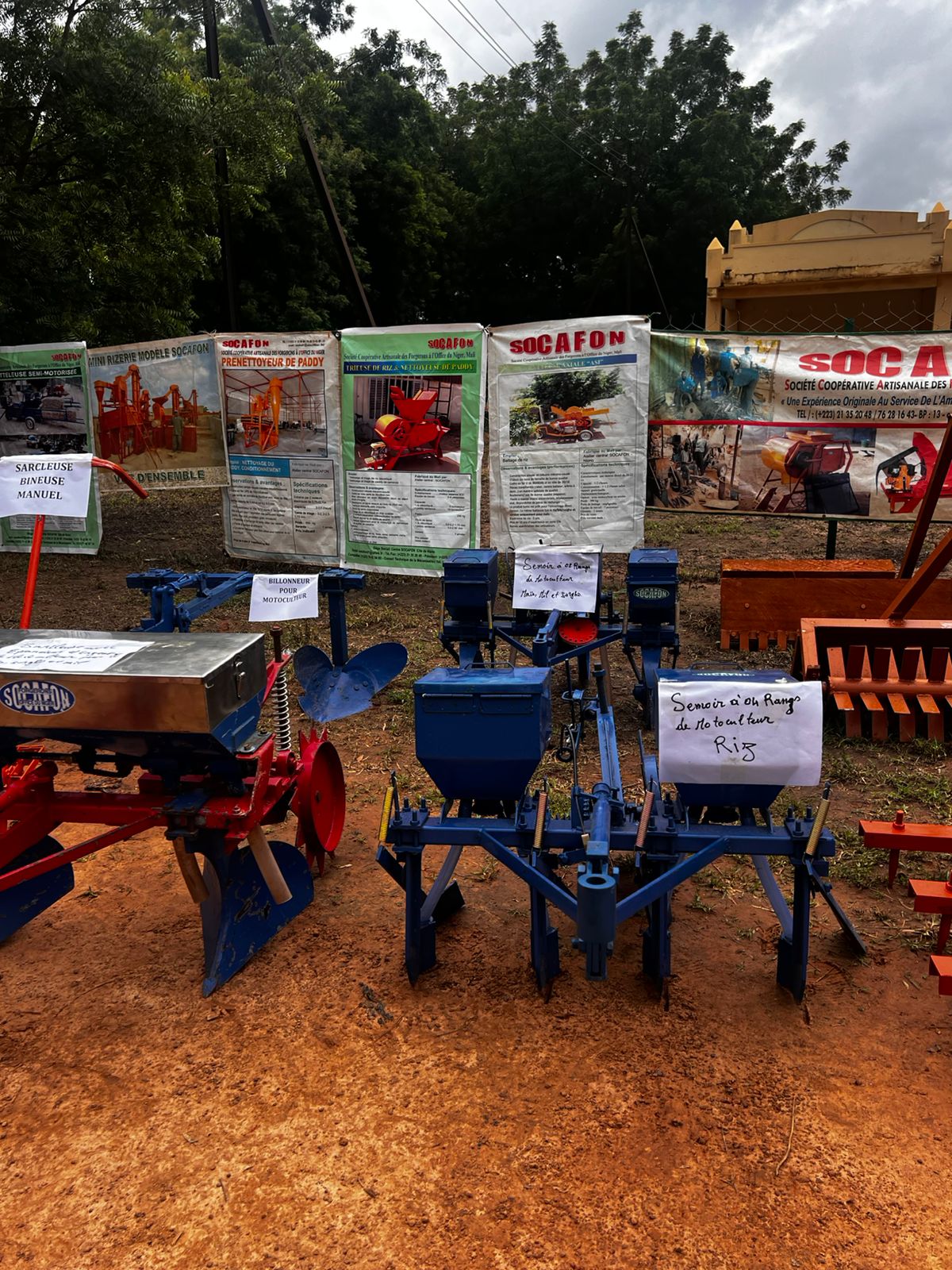
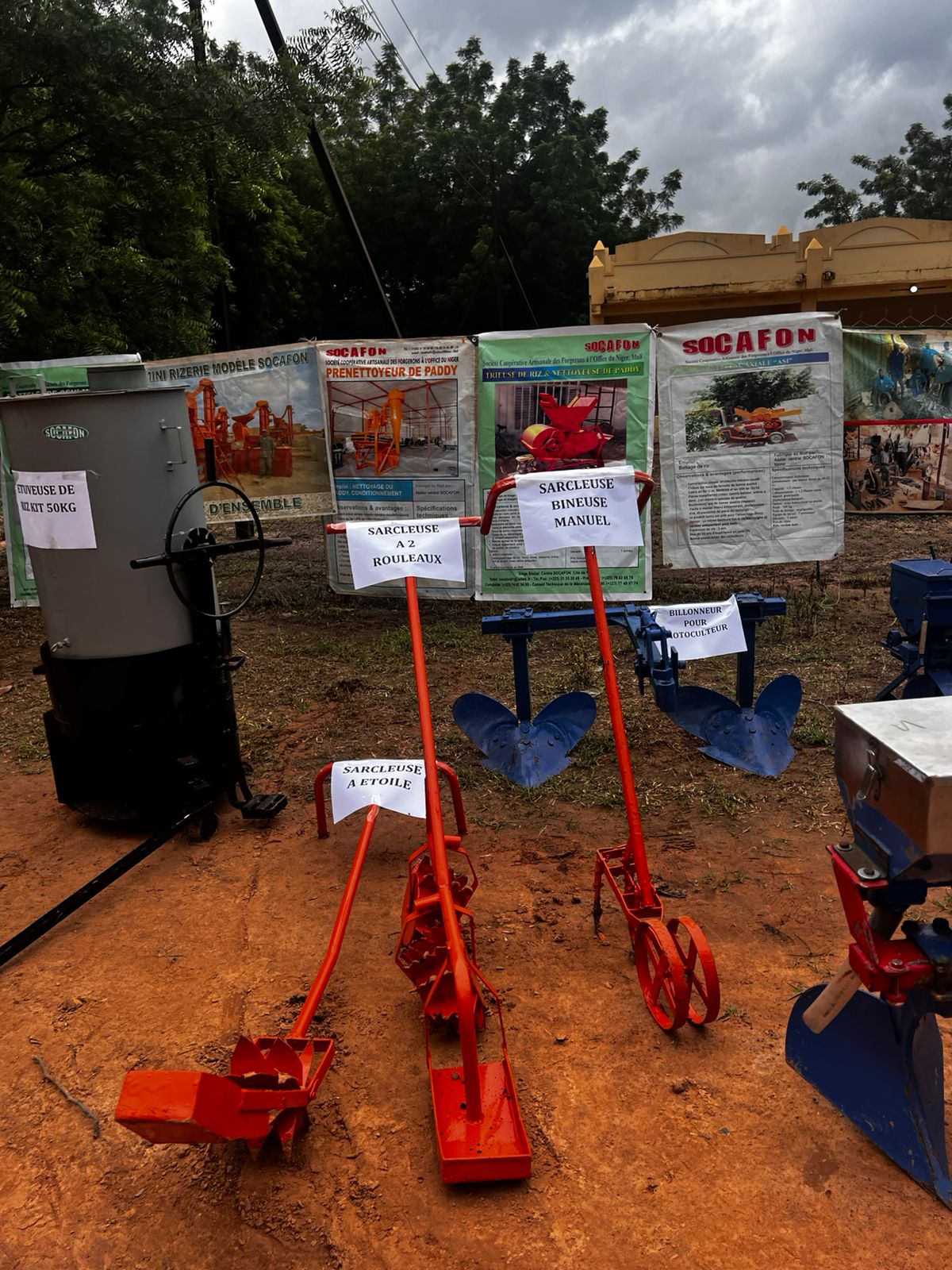

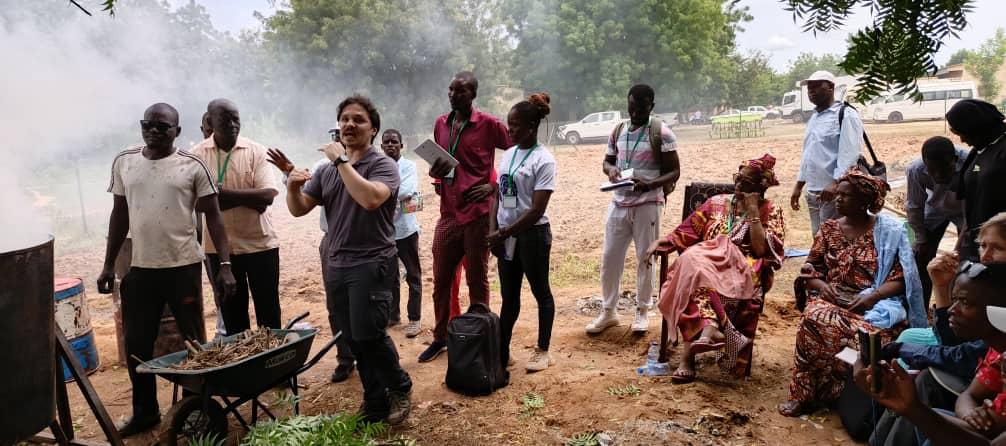
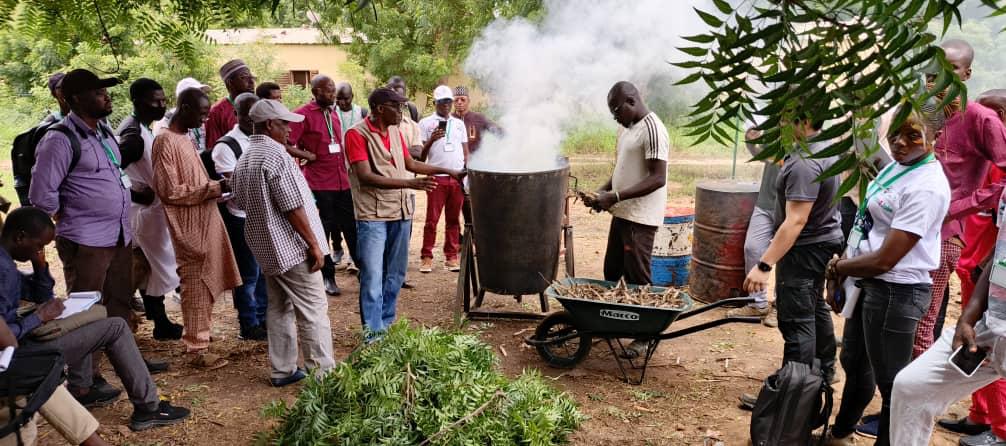
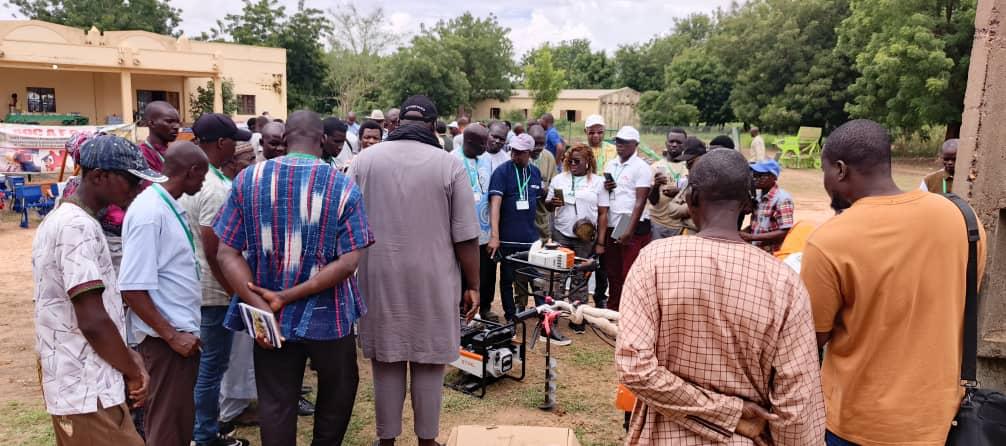
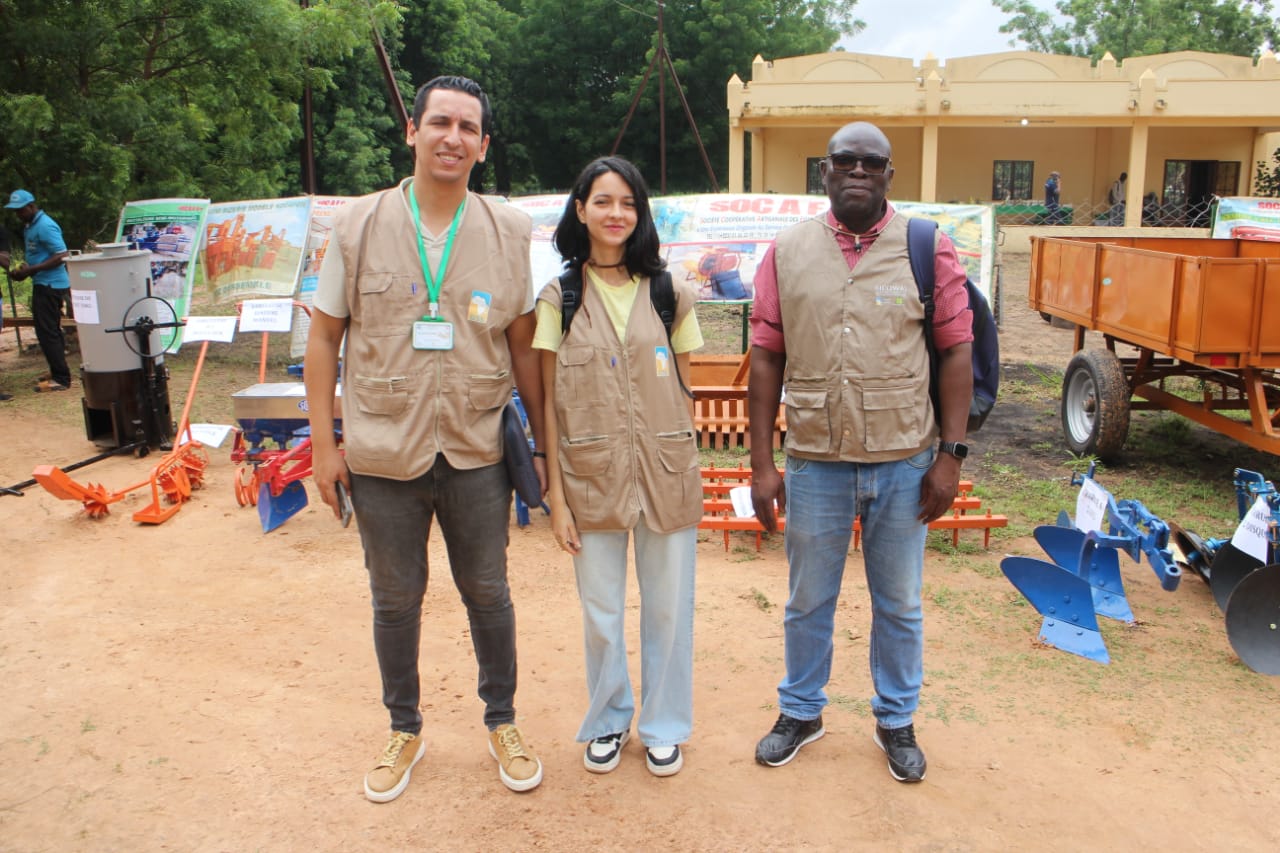
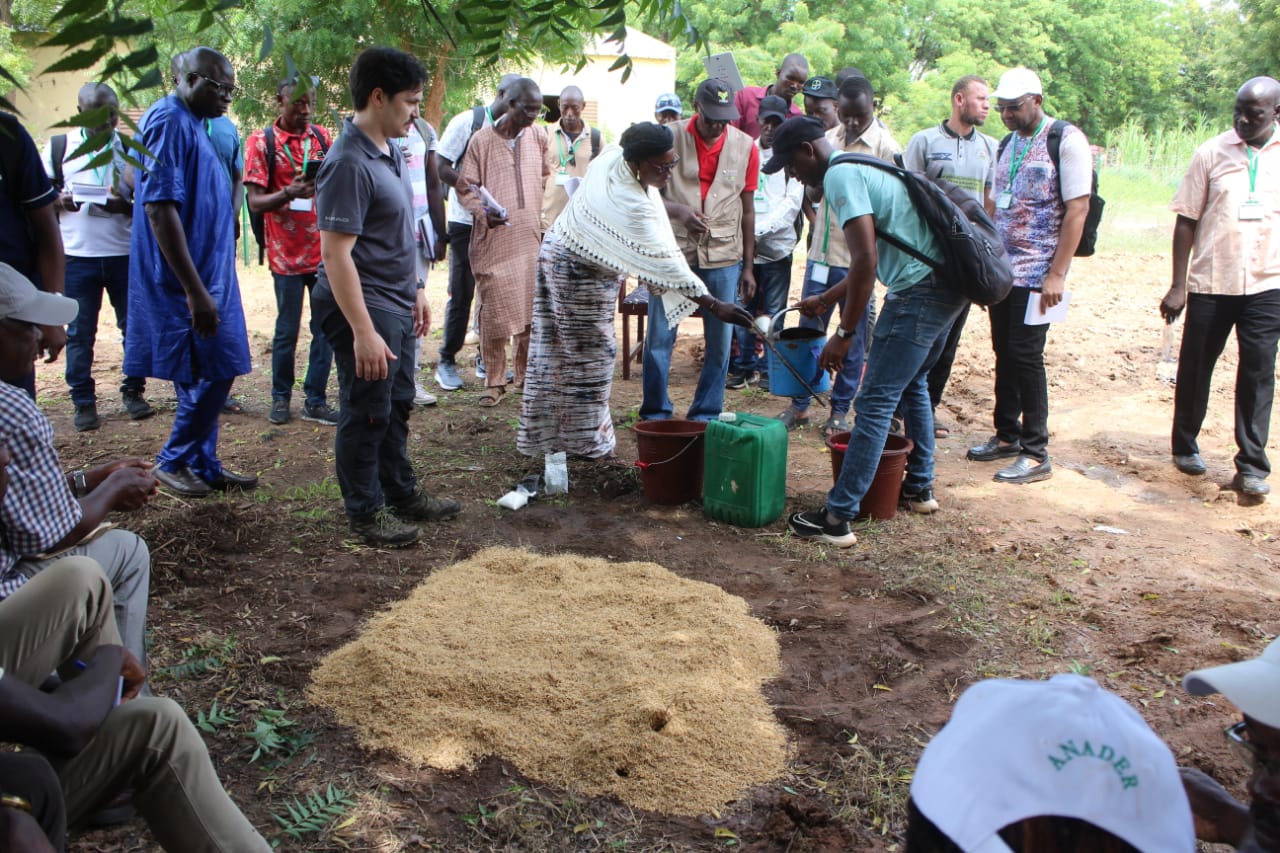
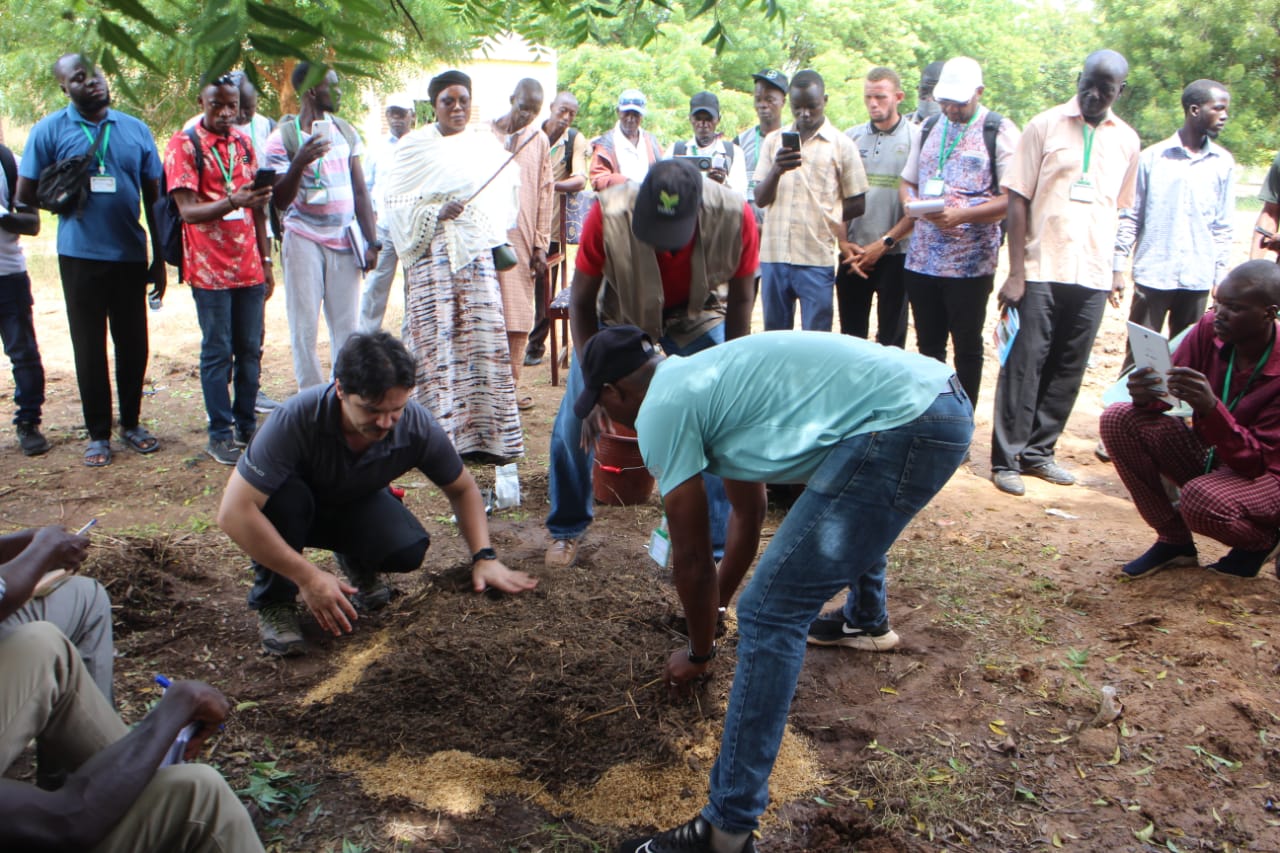
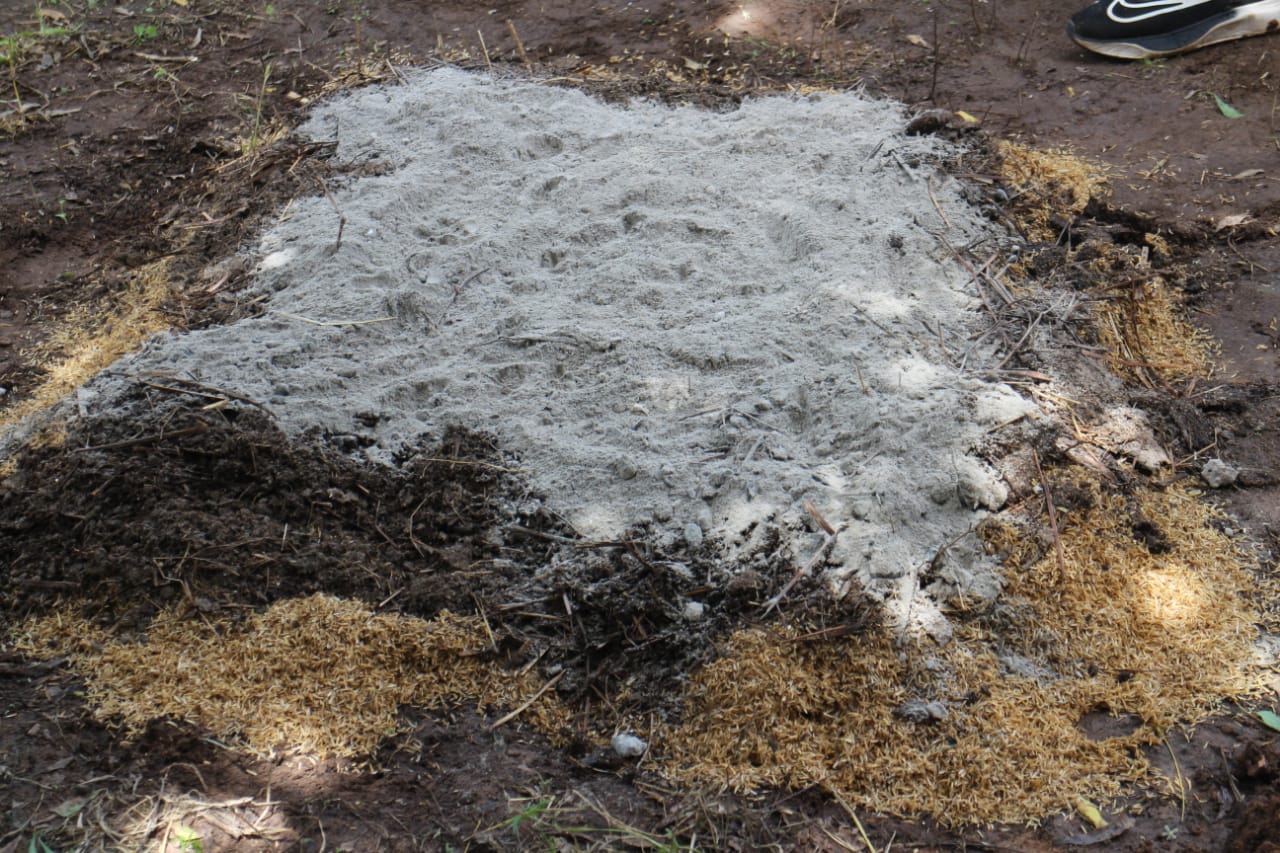
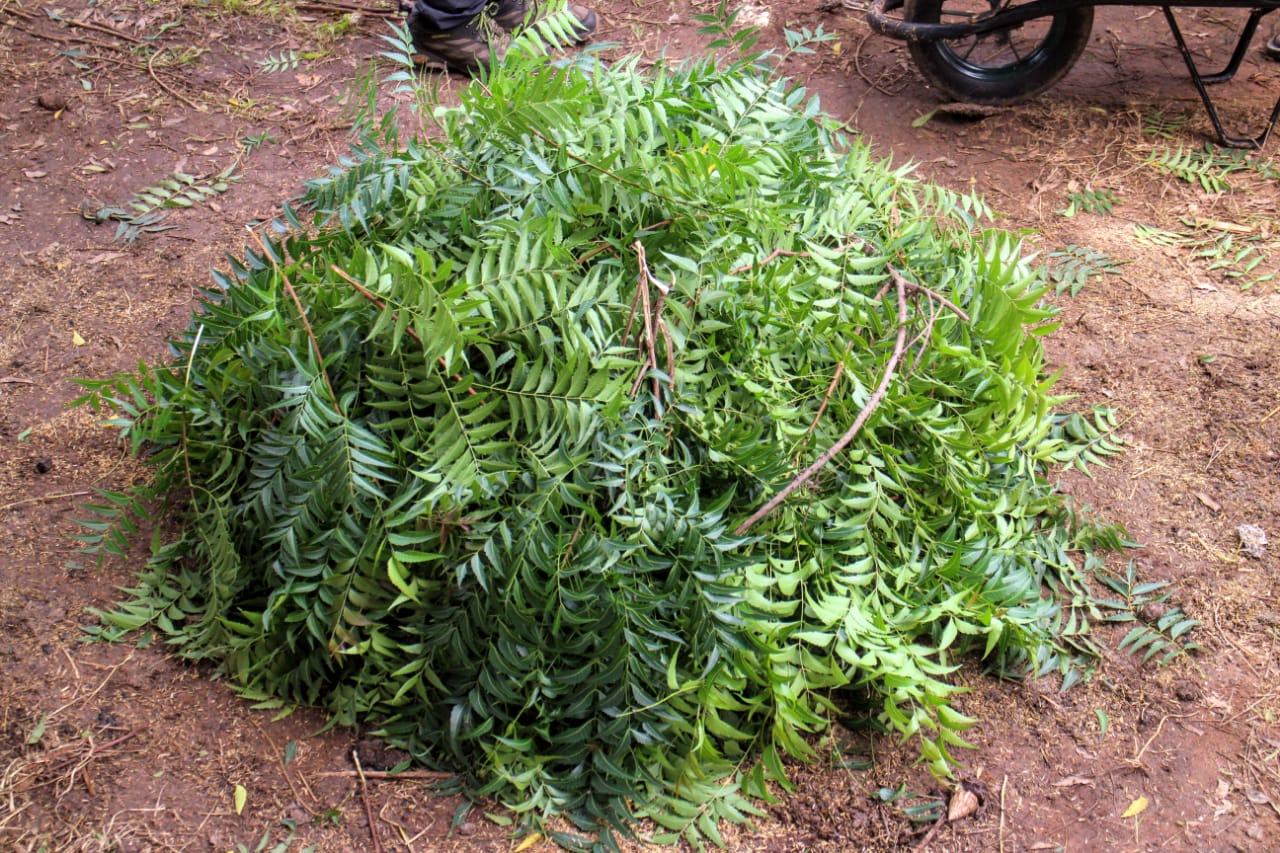
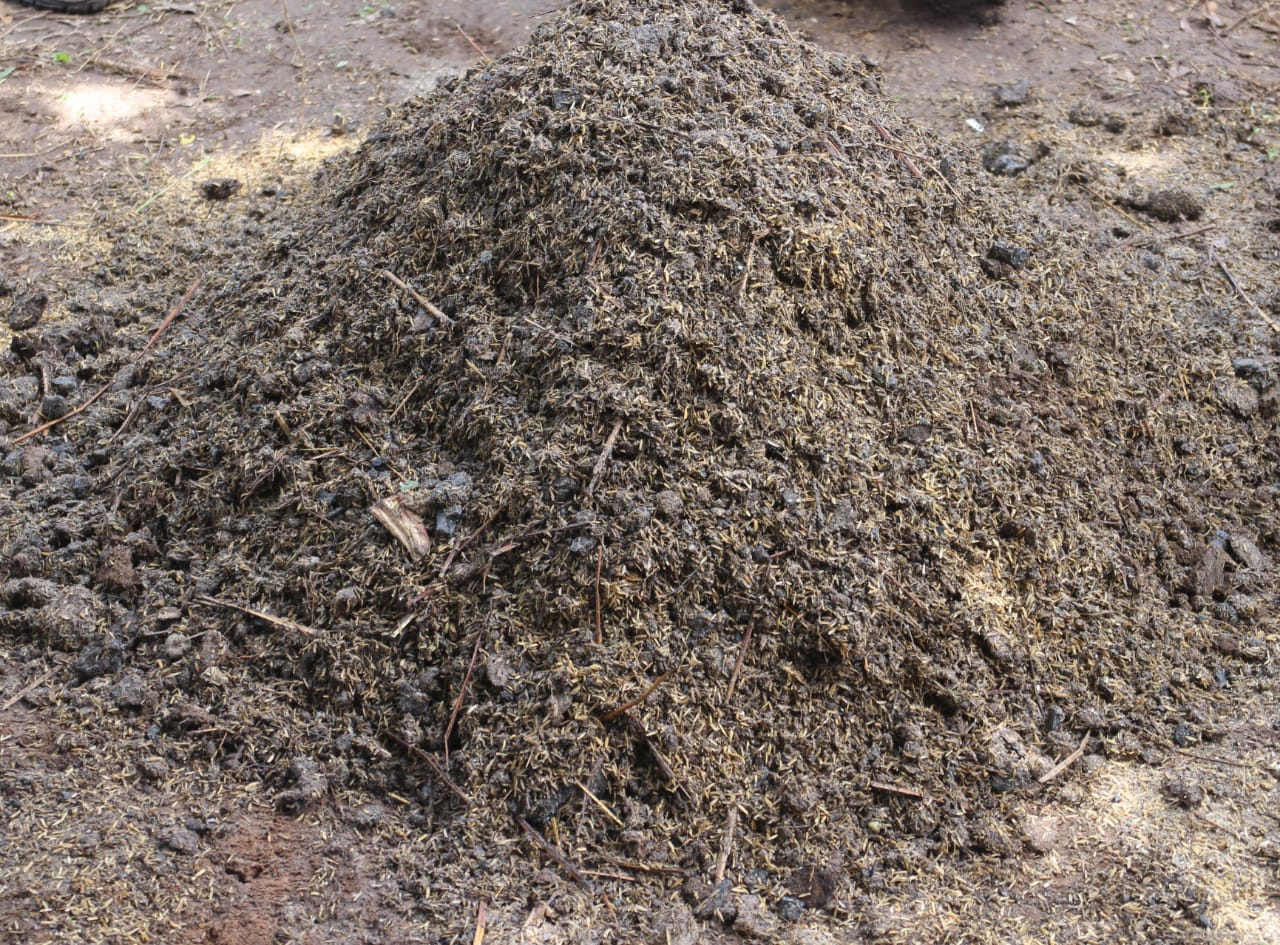
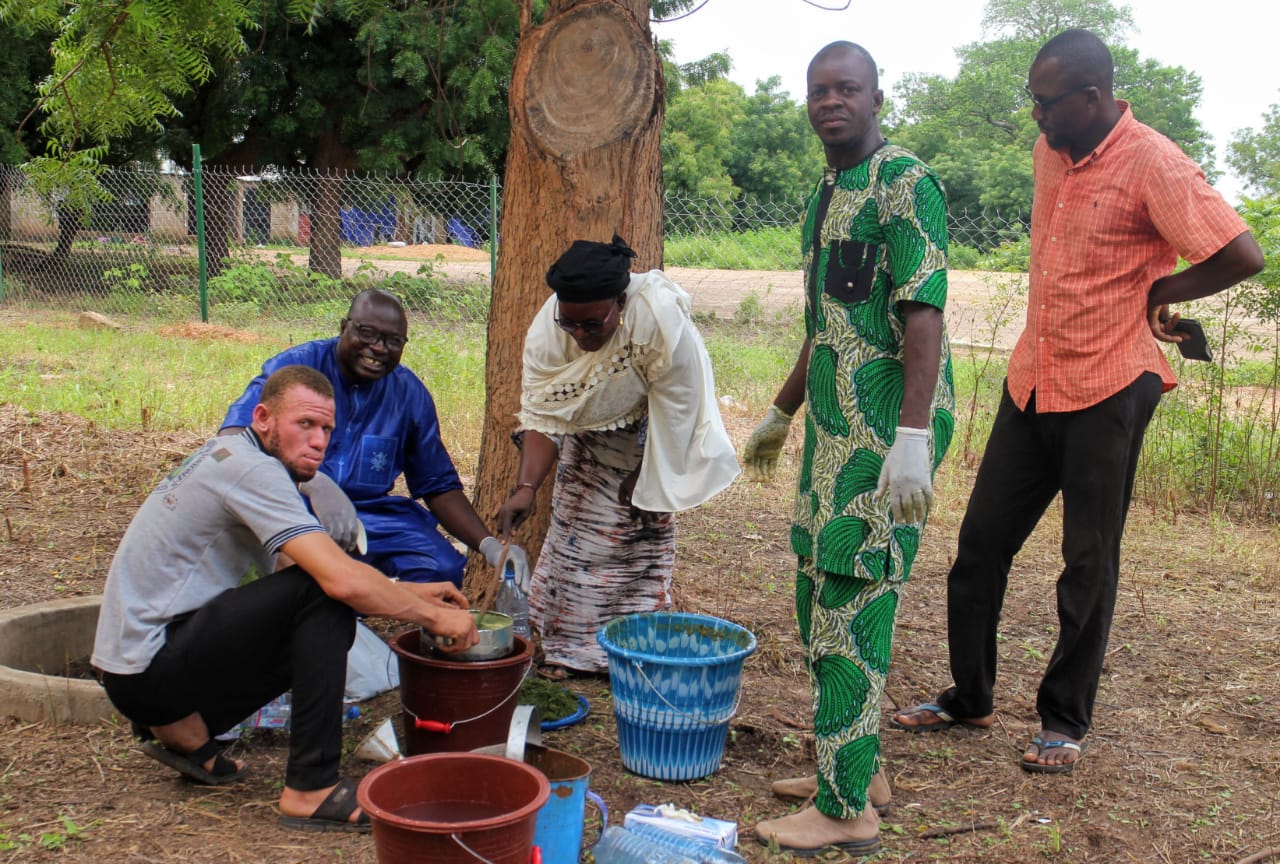
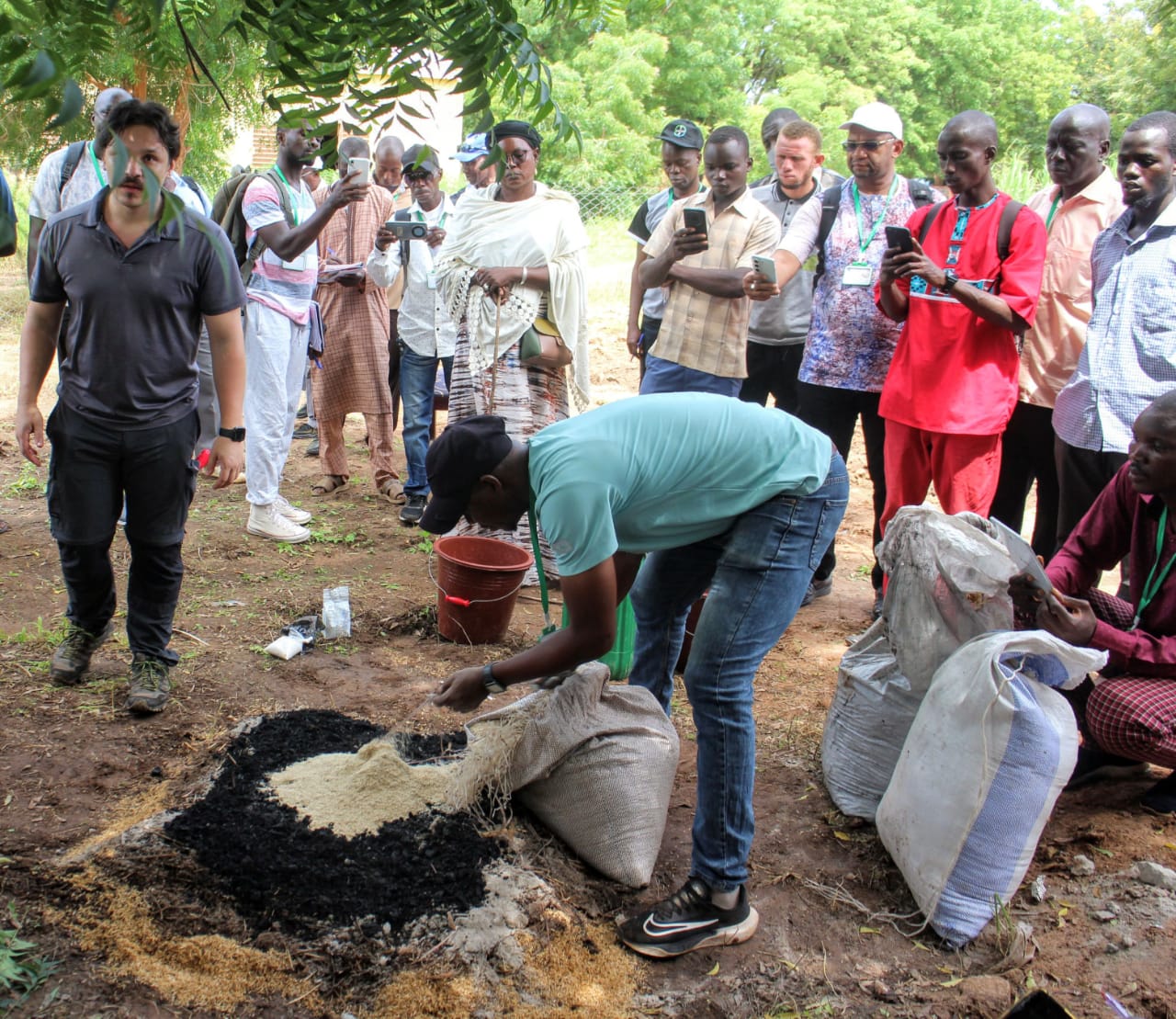
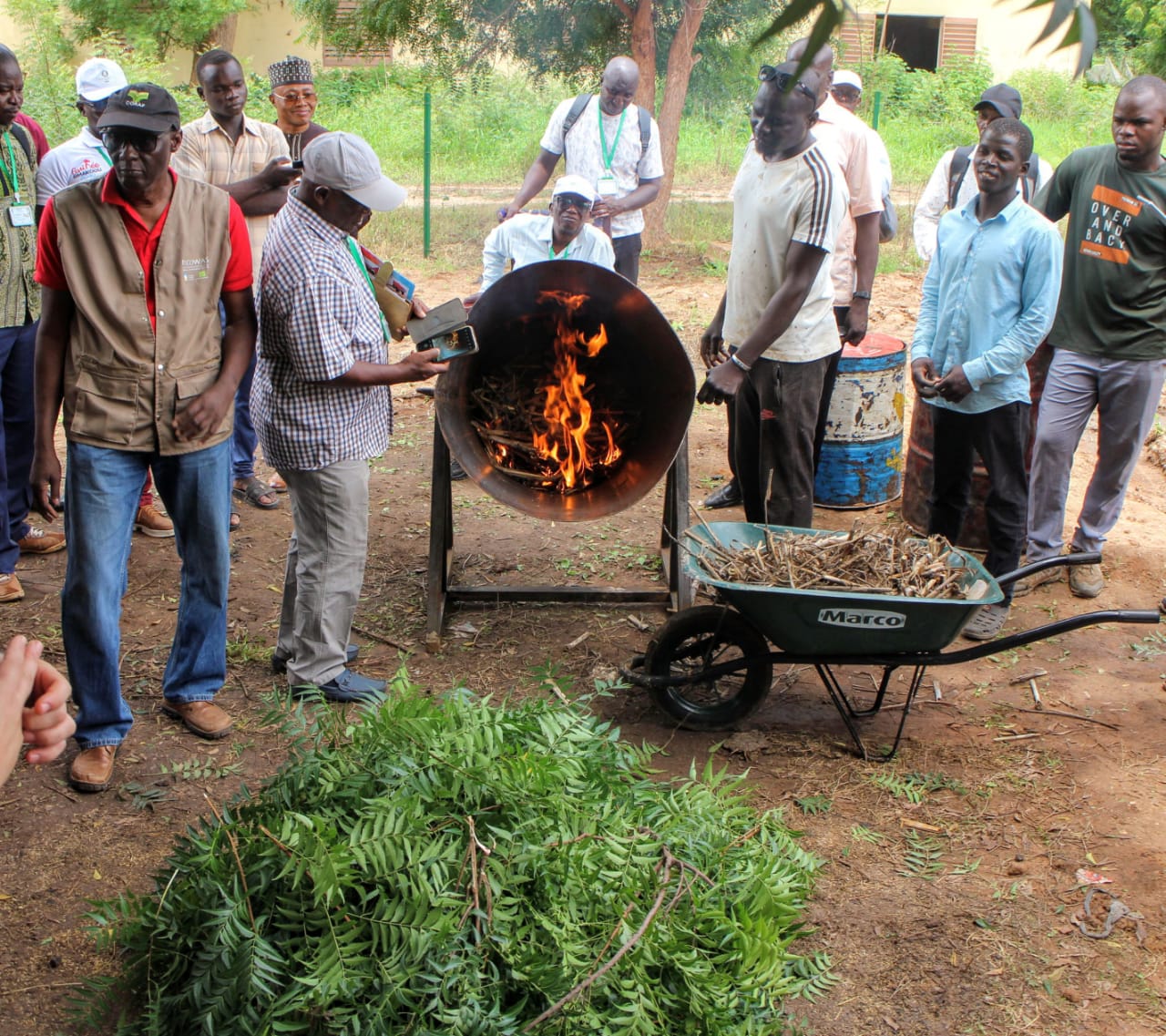
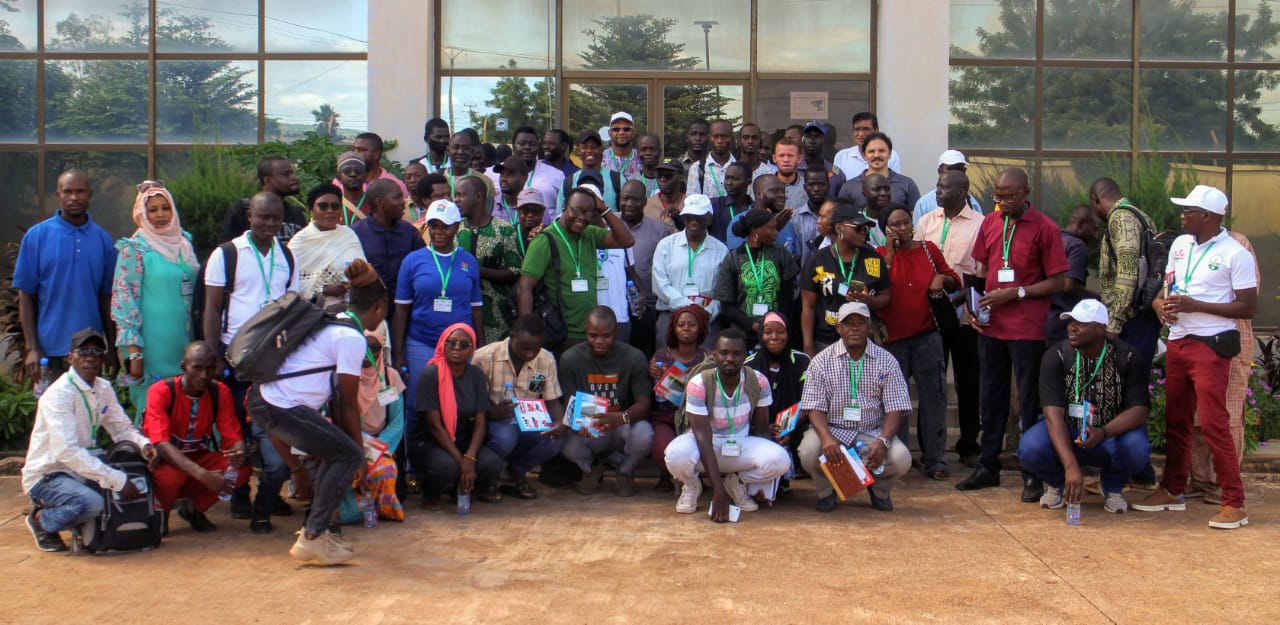
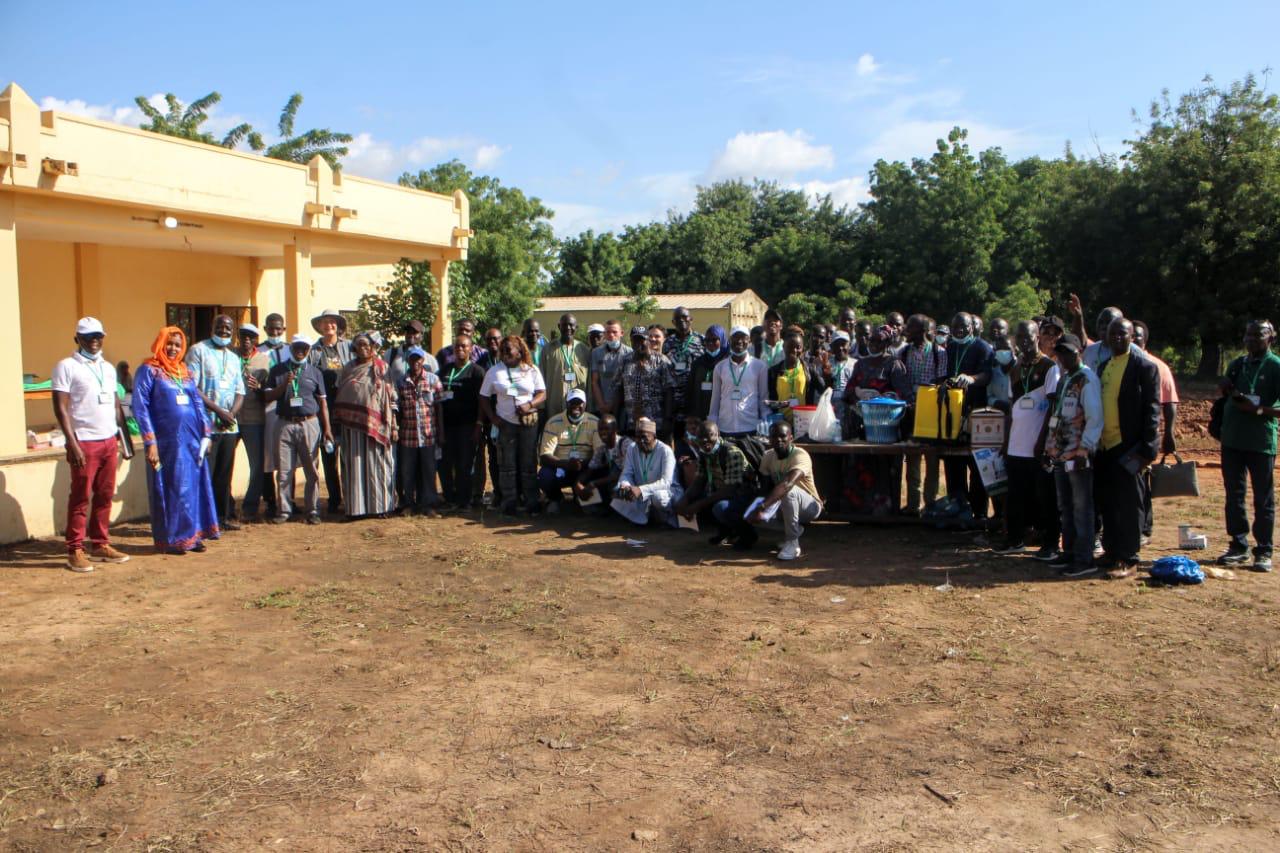
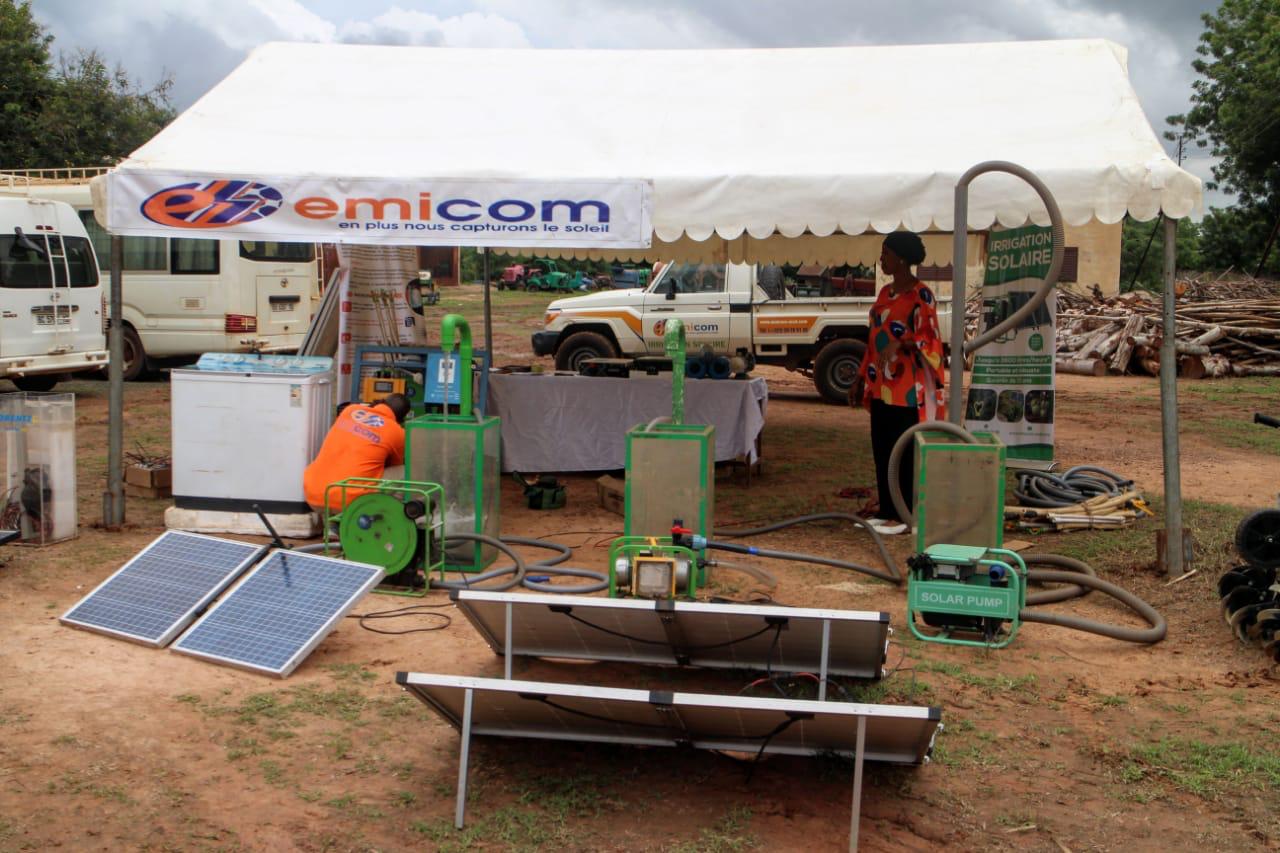
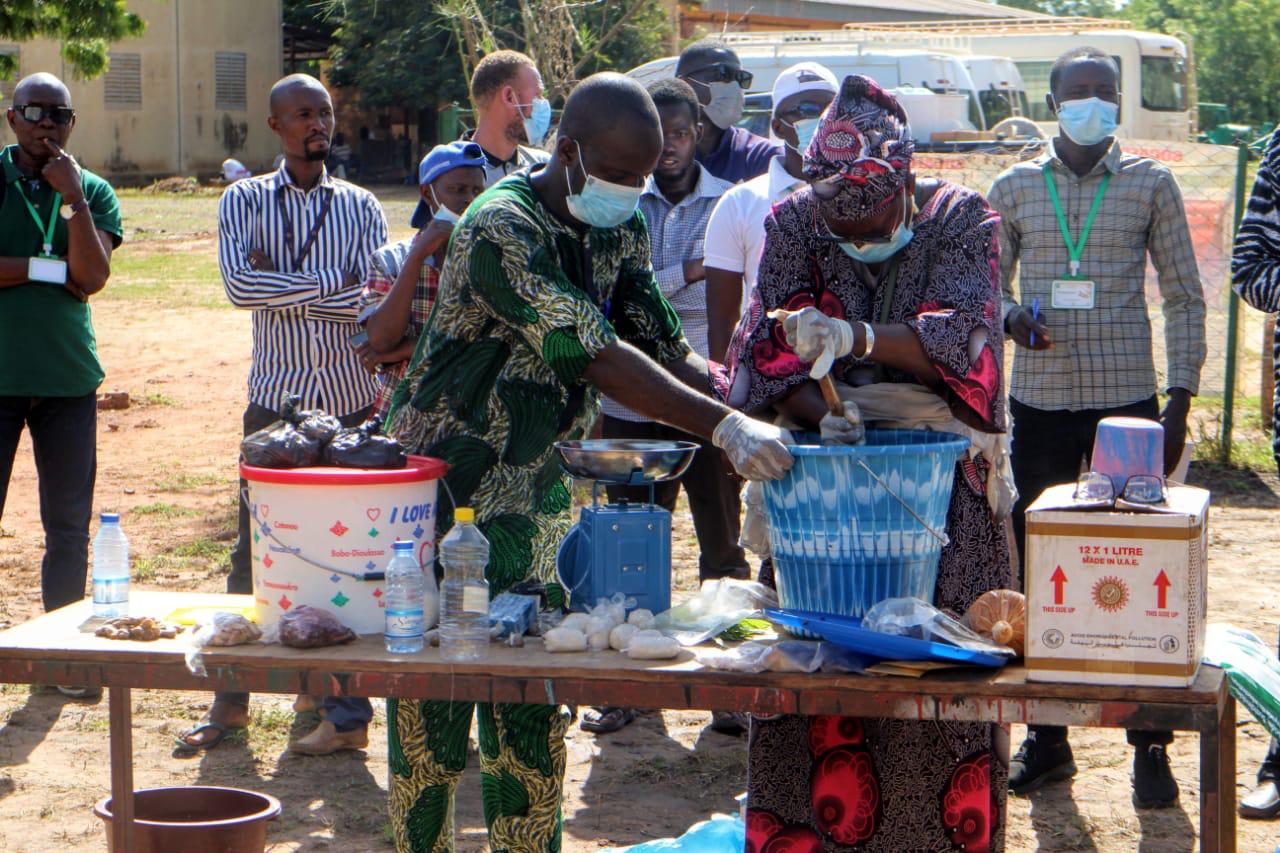
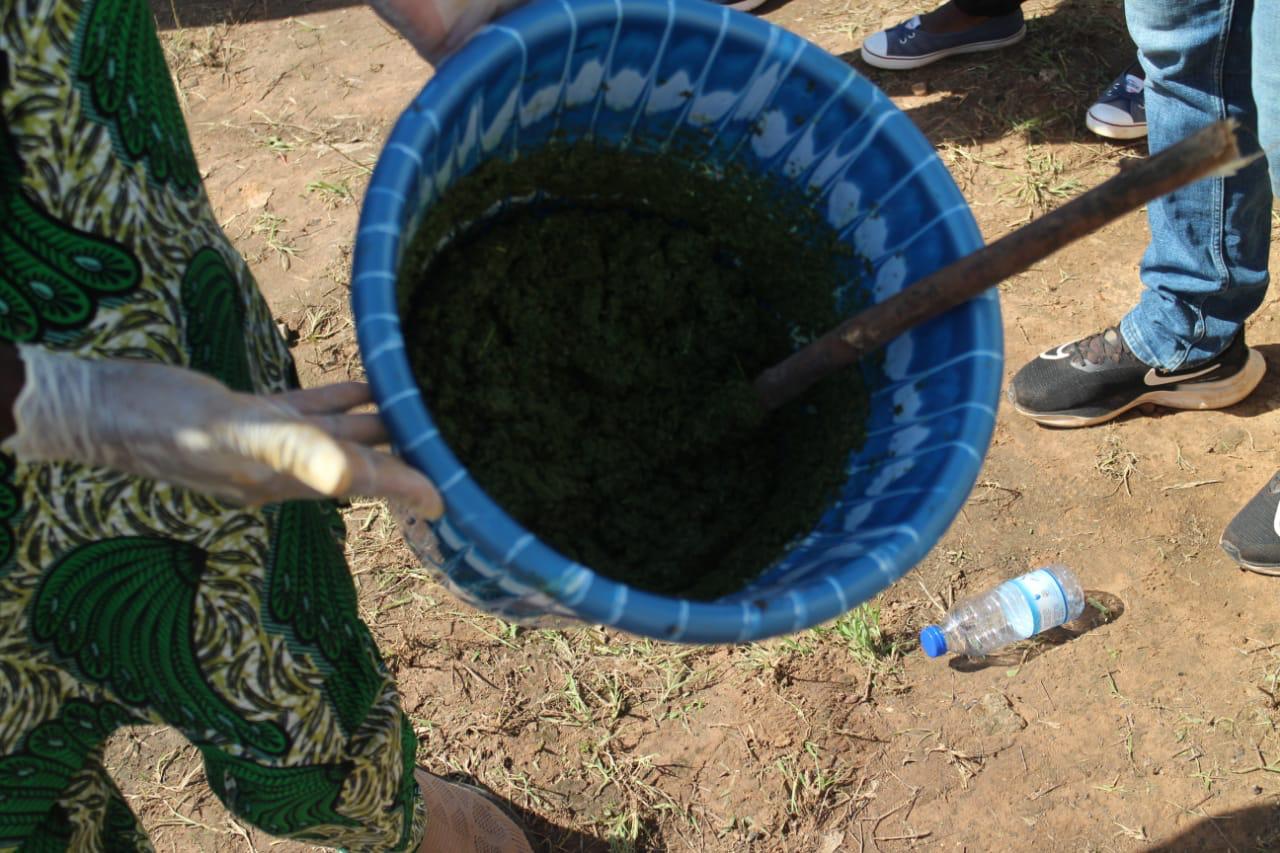
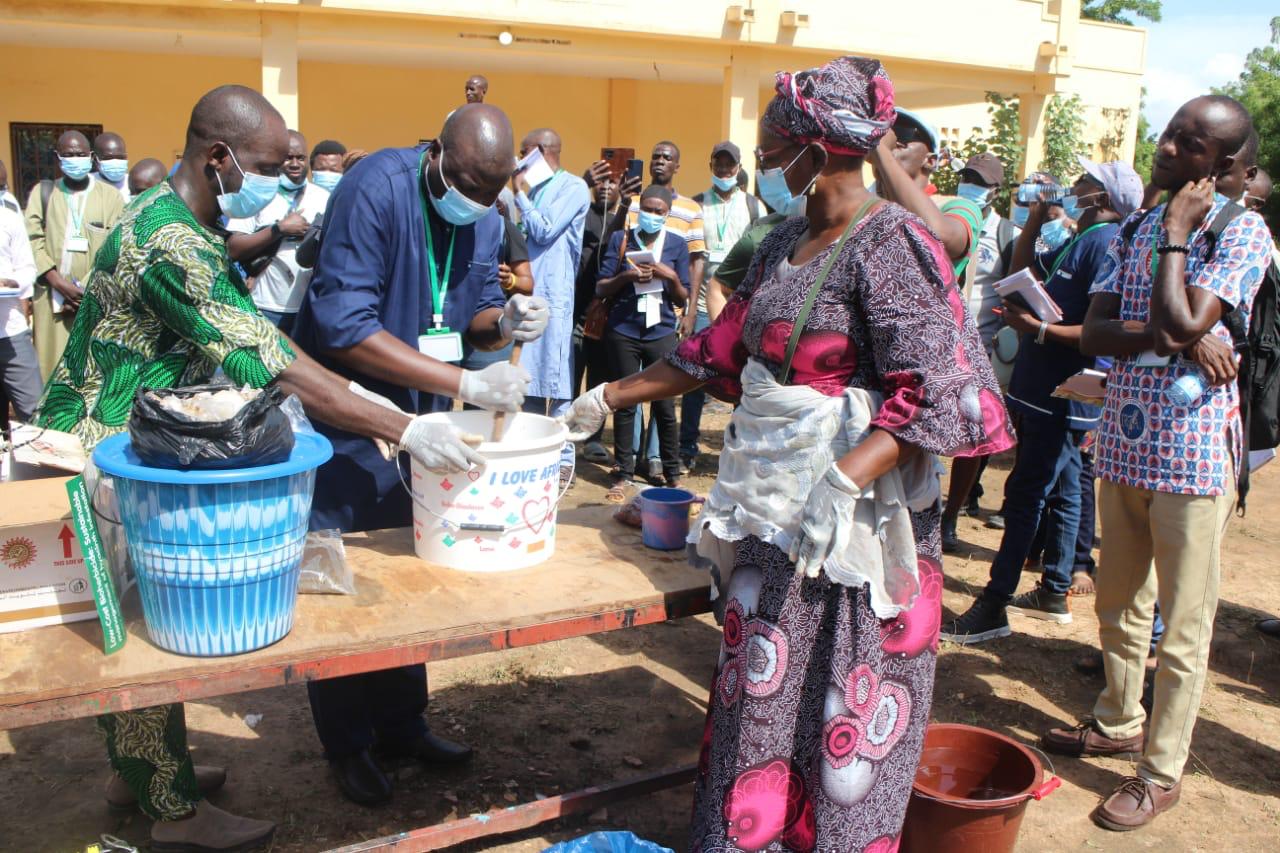
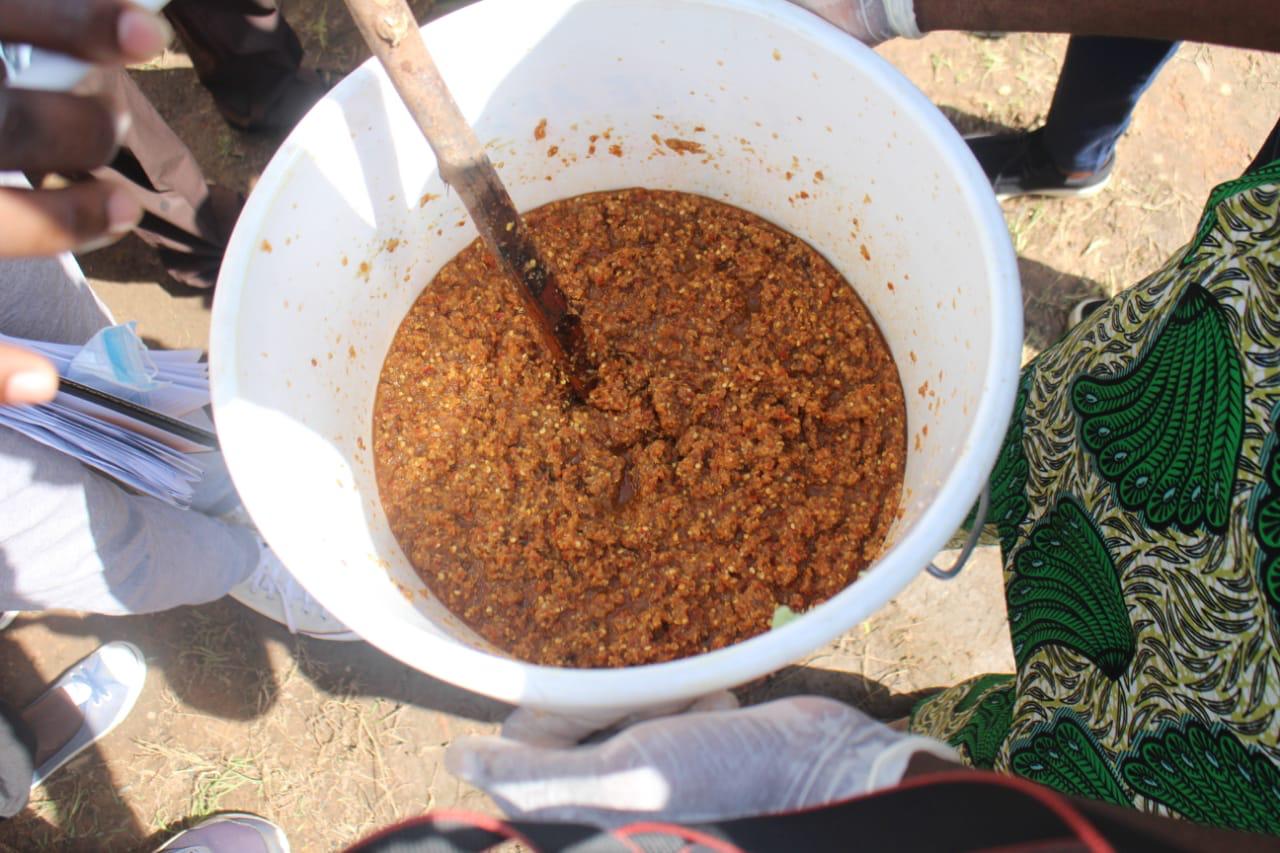
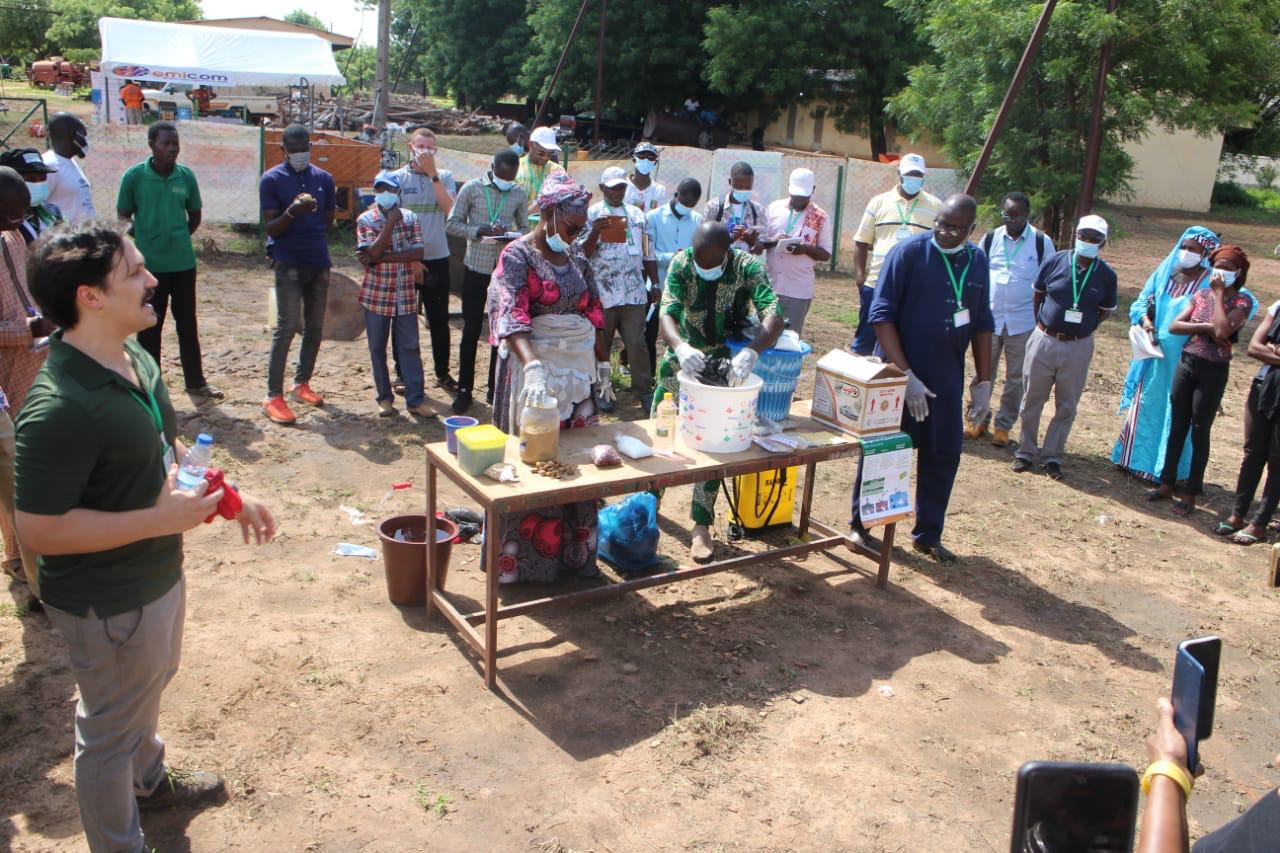
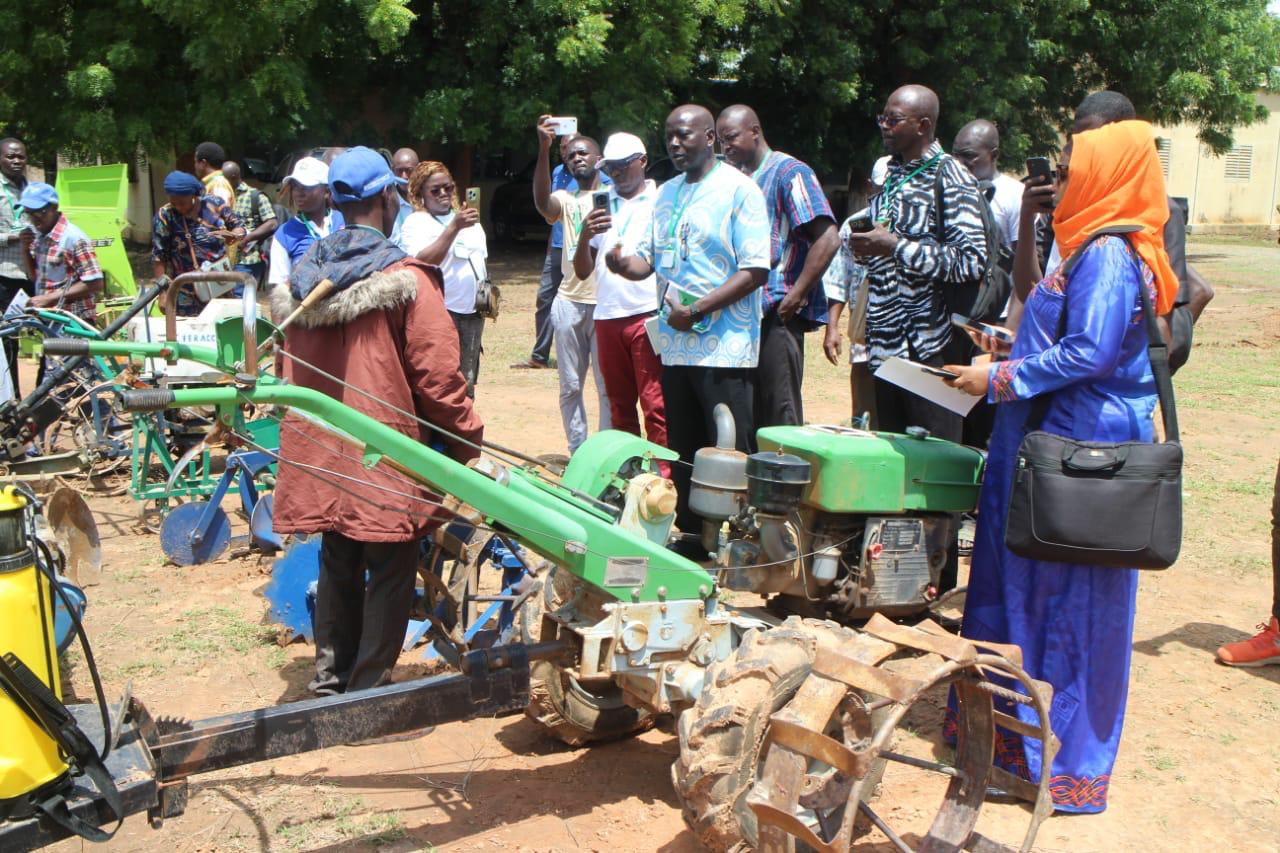
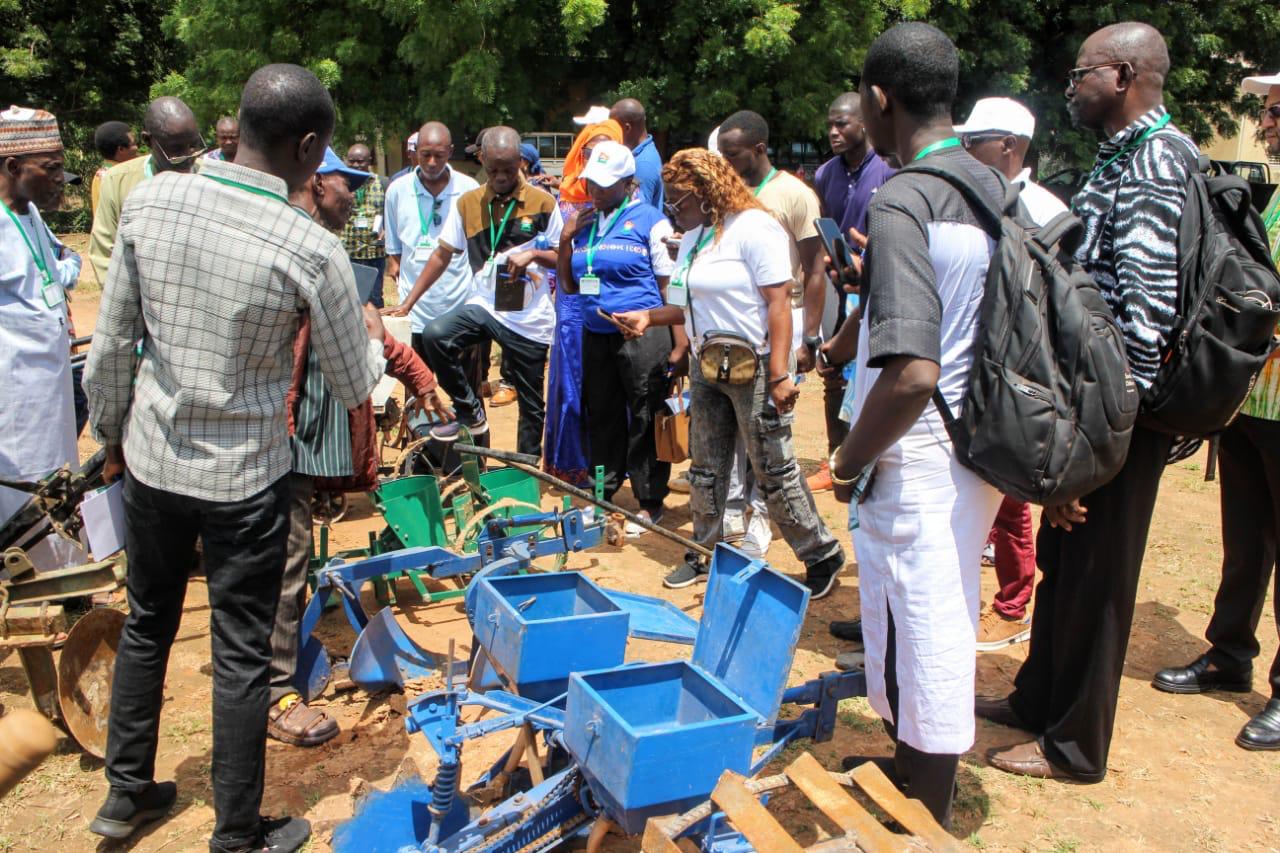
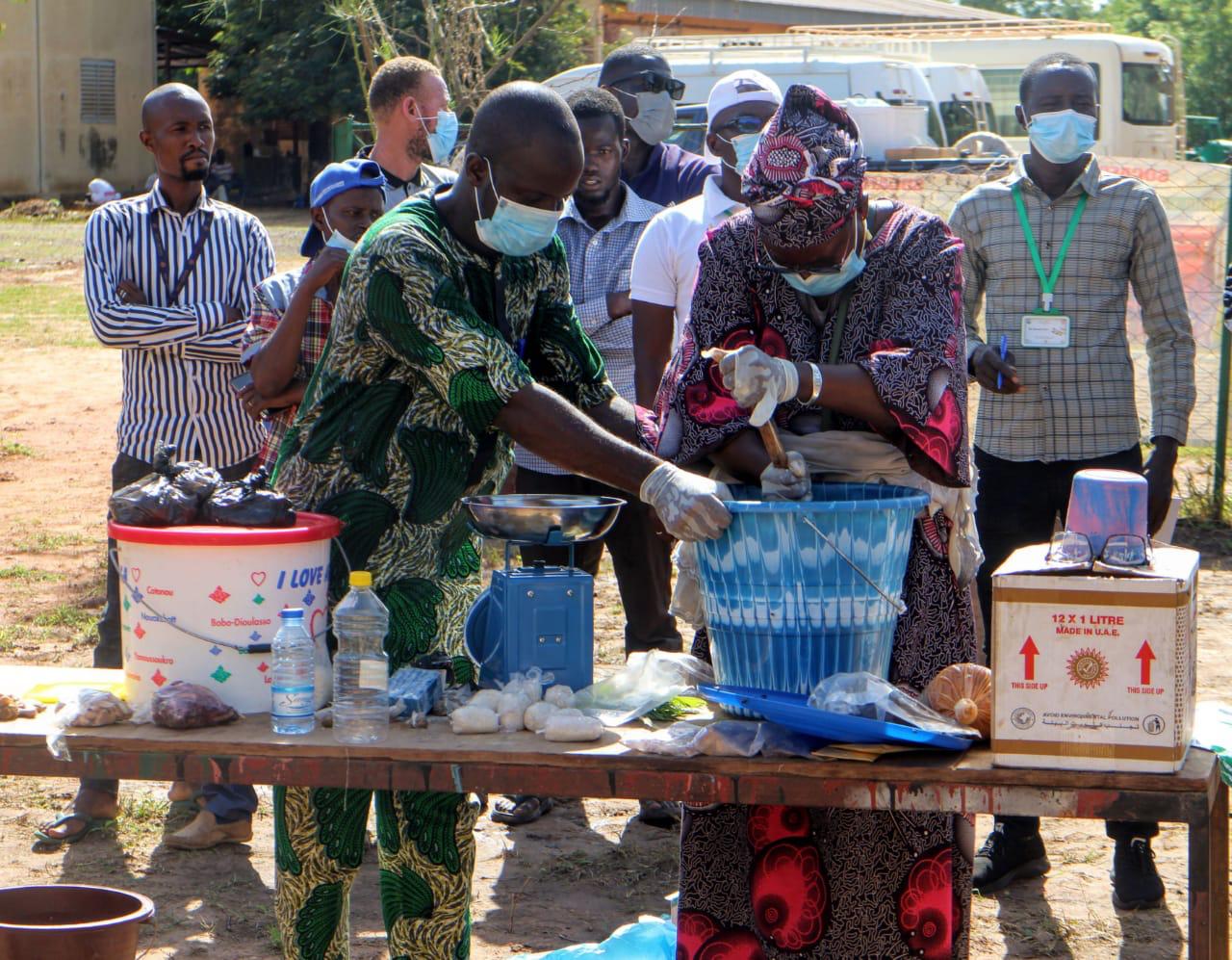
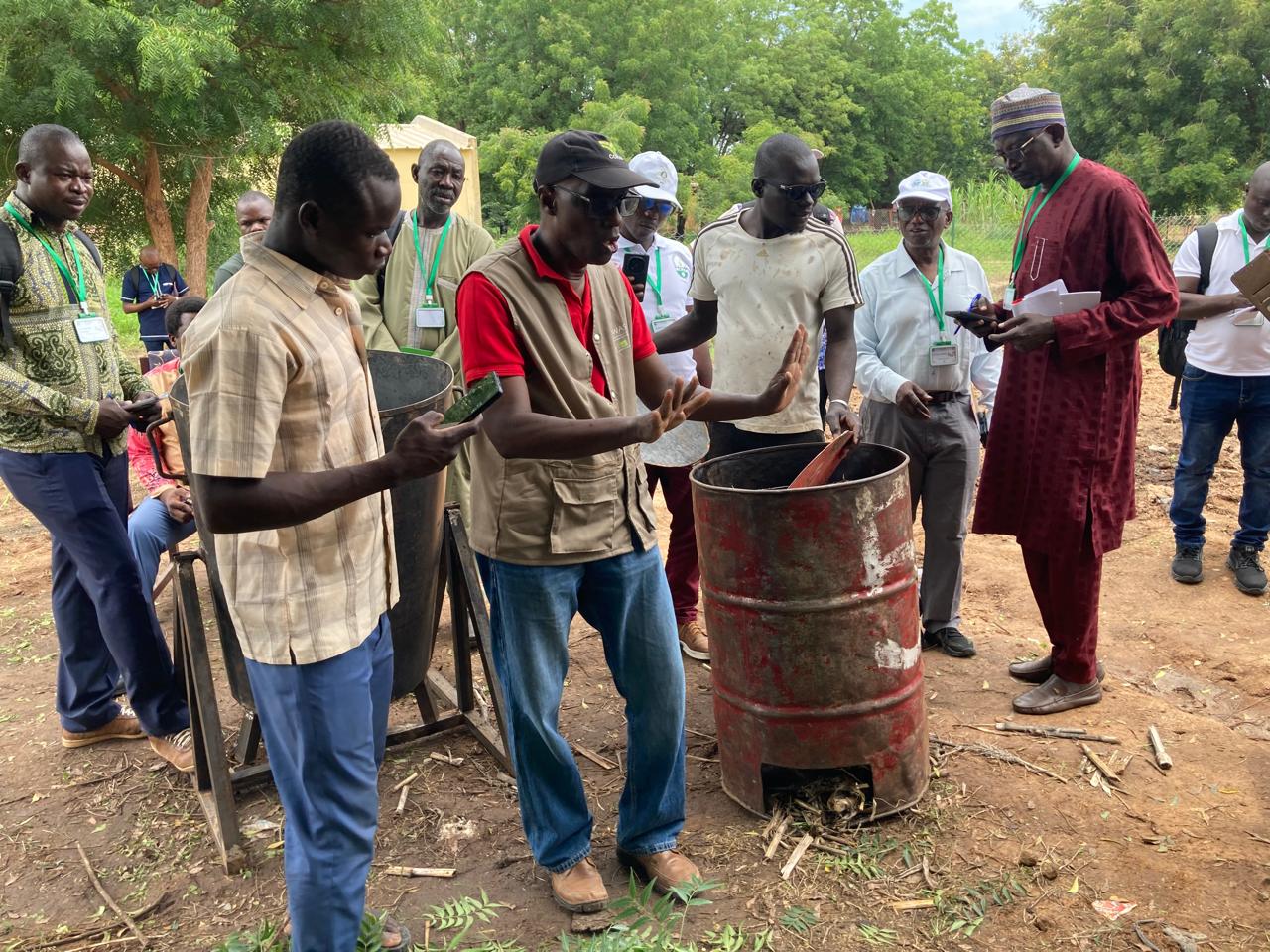
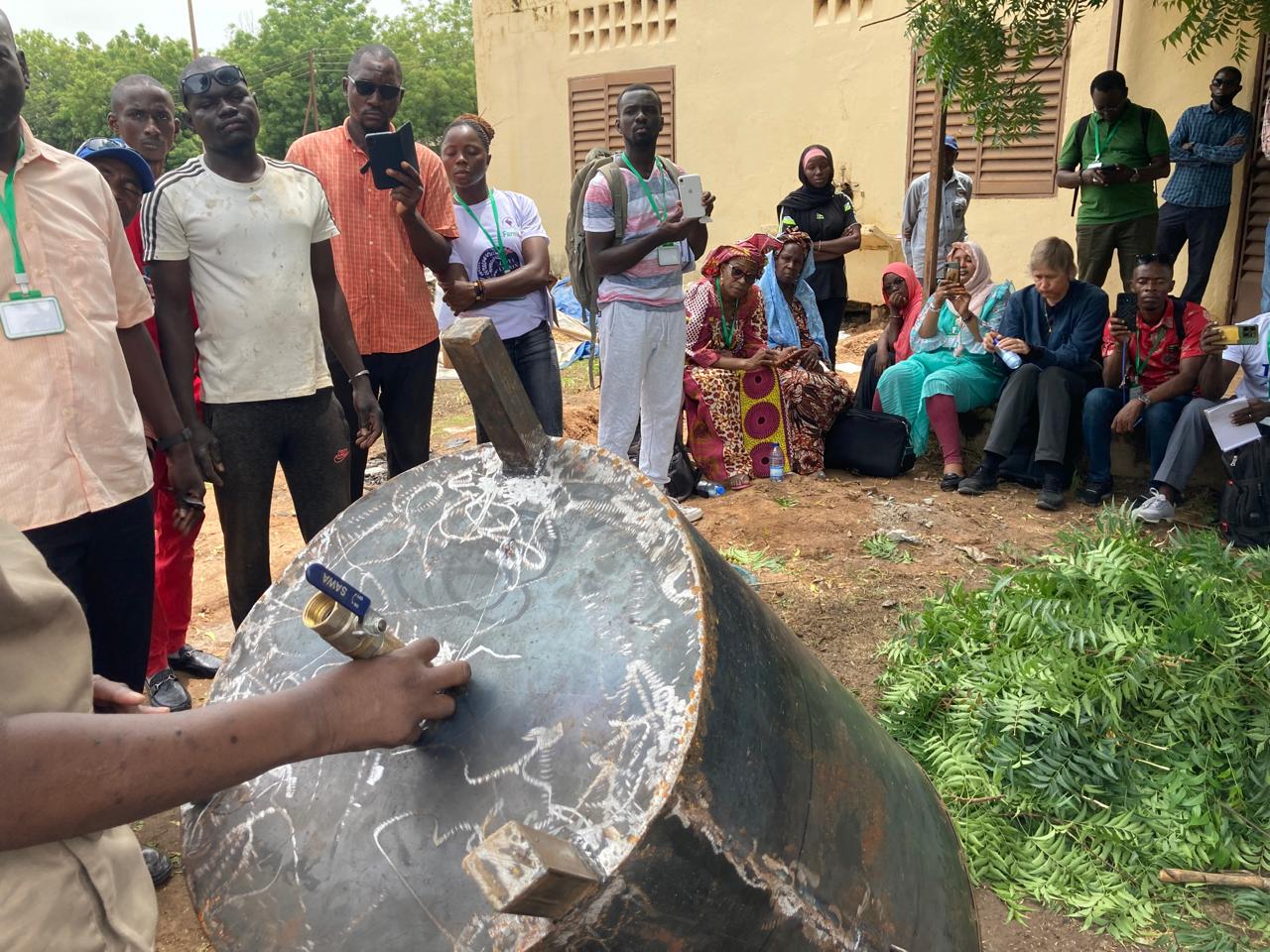
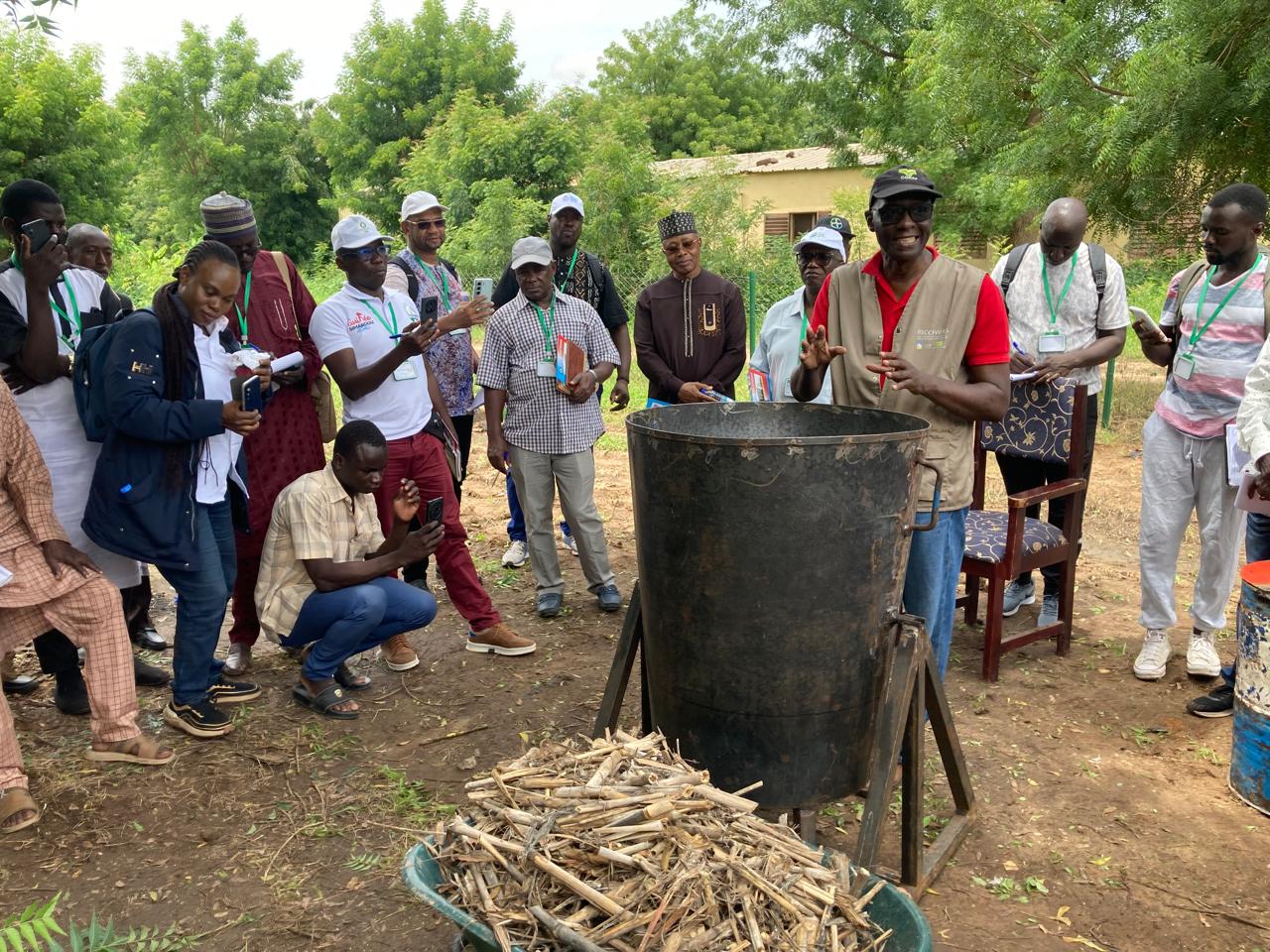
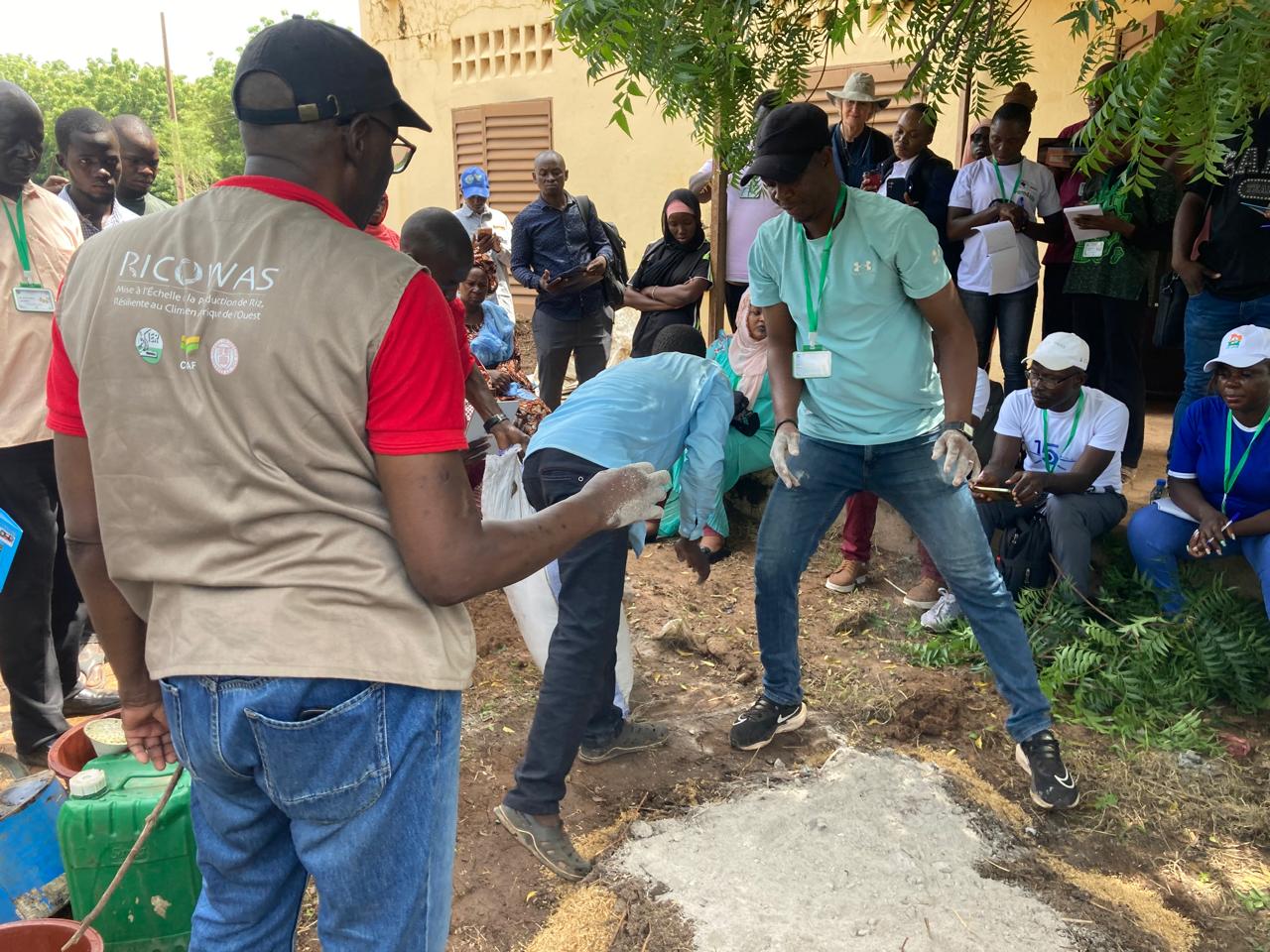
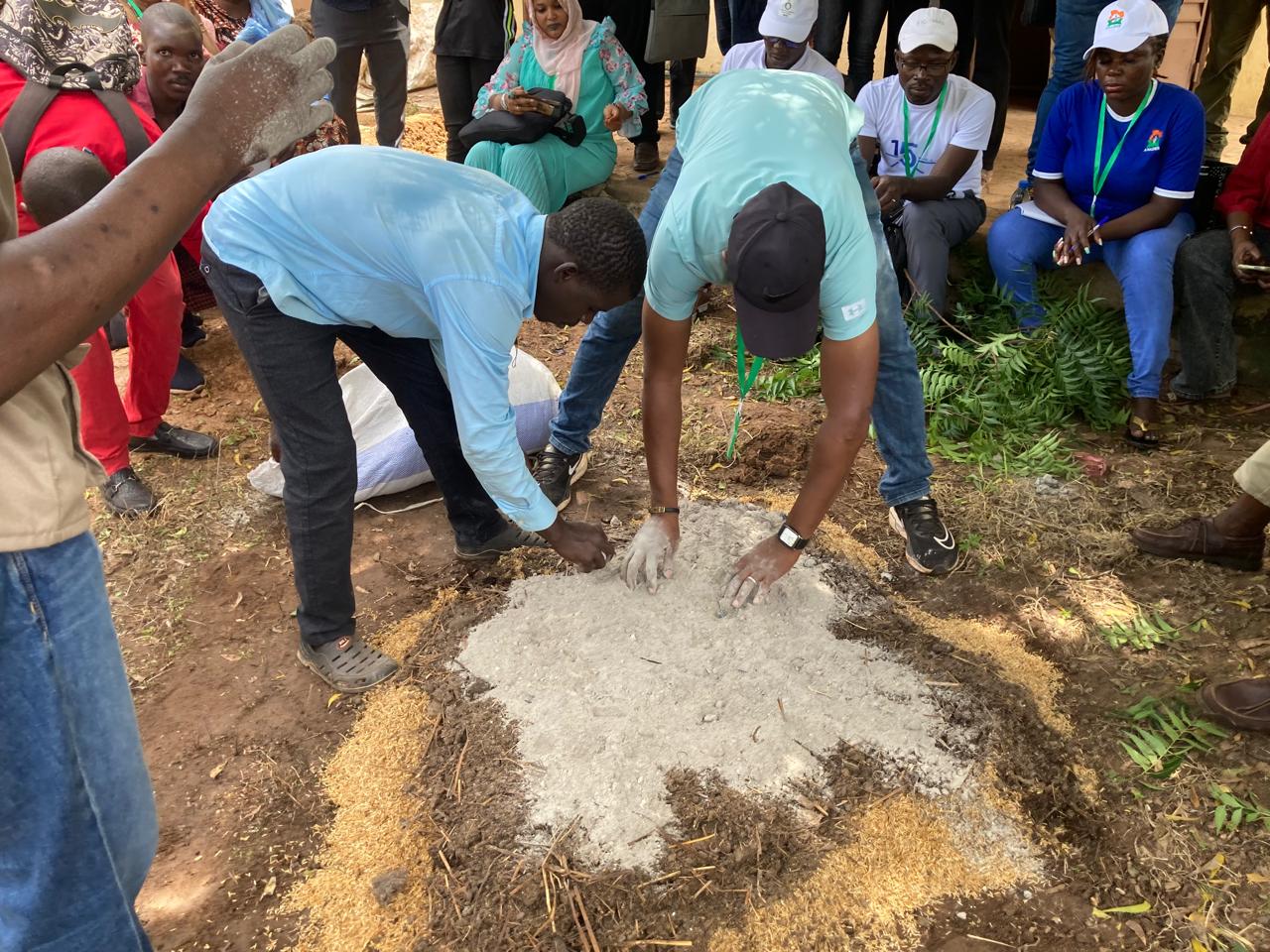
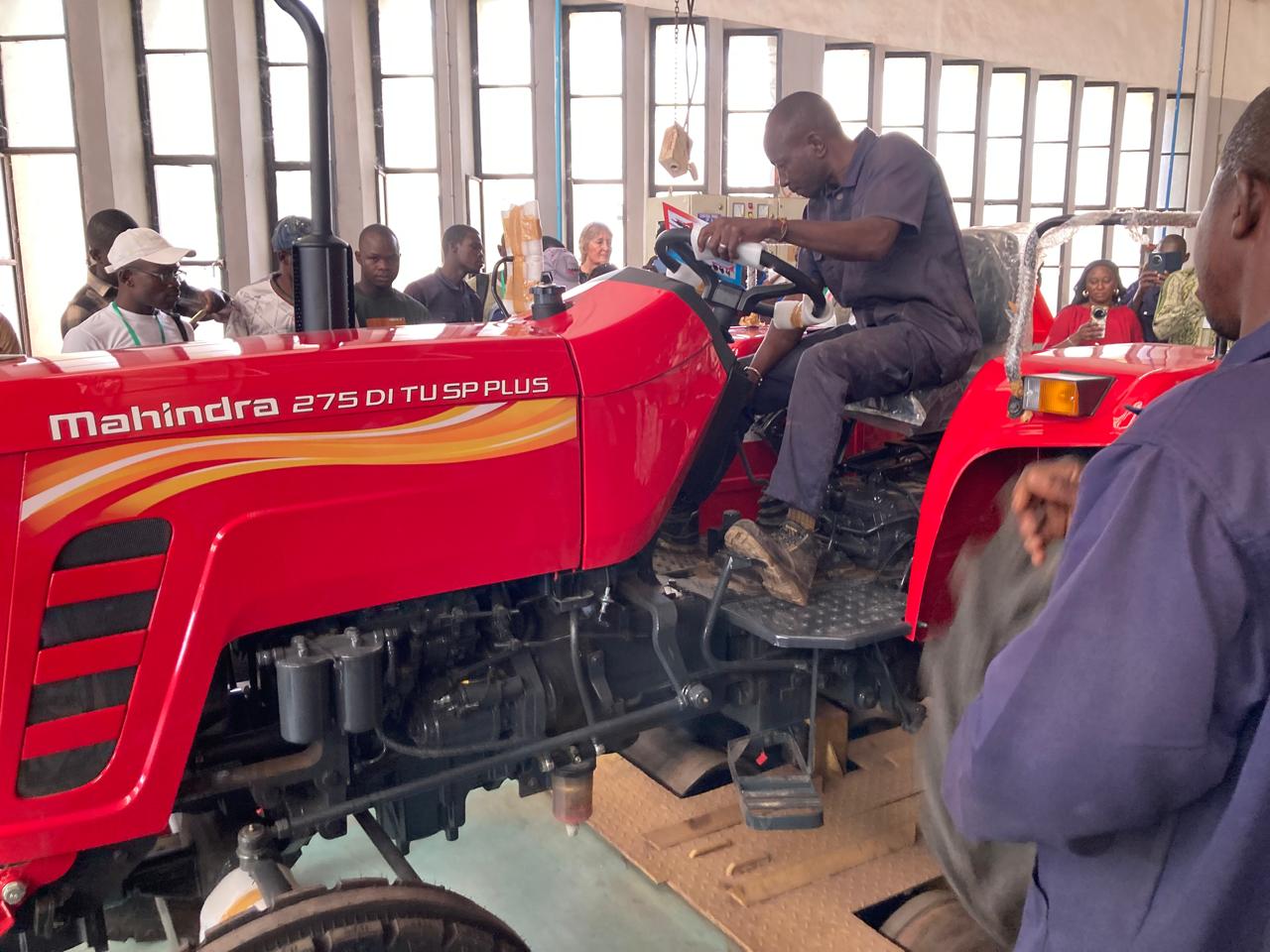
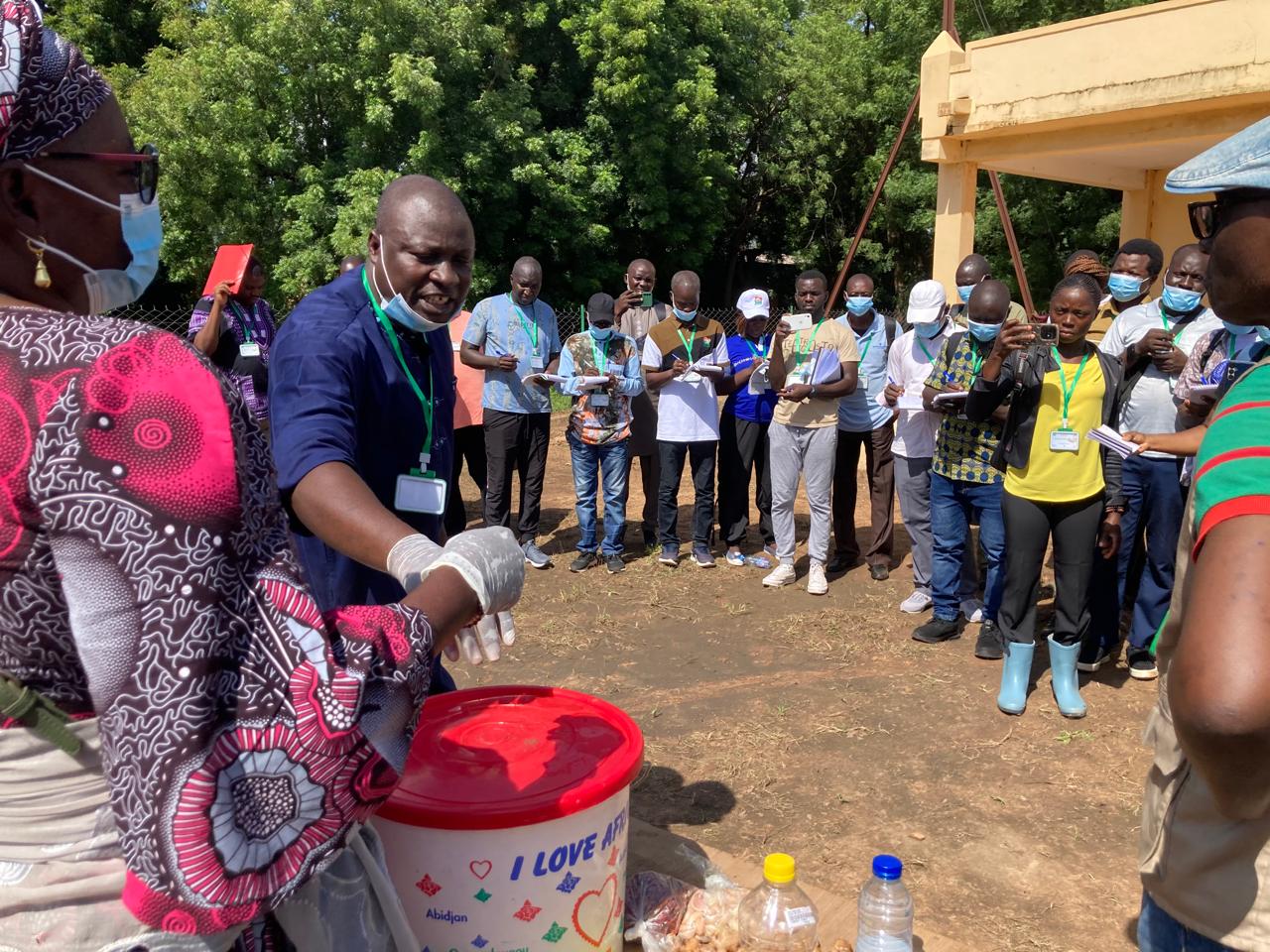
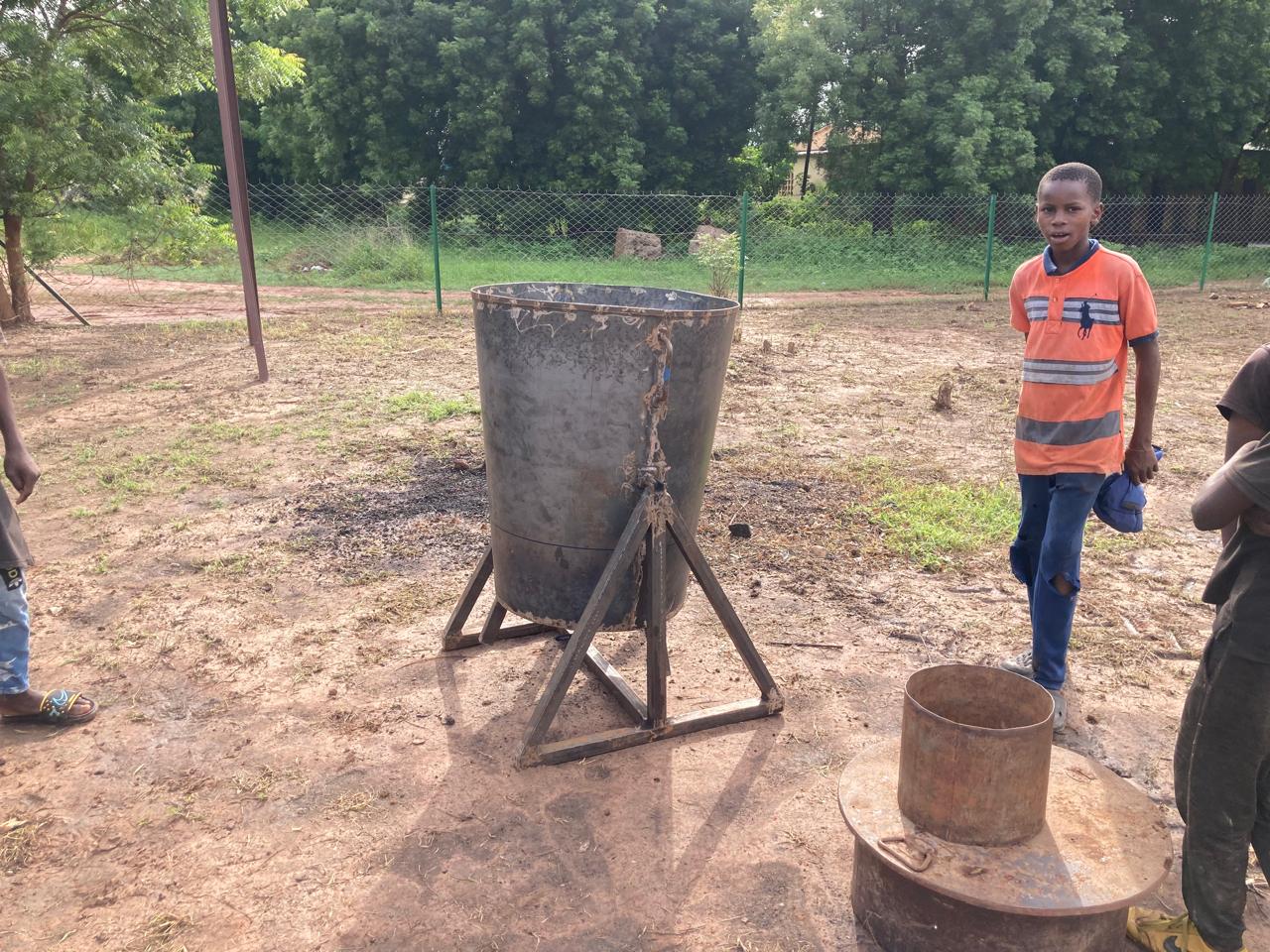
Samanko, July 9-10, 2025
As a follow-up to the second regional training-of-trainers (ToT) workshop on the System of Rice Intensification (SRI) and Climate-Resilient Rice Production (CRRP) techniques, the sessions held on July 9 and 10 took place at the “Dramane Zerbo” Agricultural Machinery Training and Demonstration Center in Samanko. This venue served as the setting for the practical component of the training, allowing participants to consolidate their knowledge through demonstrations and hands-on field exercises.
Organized as part of a broader effort to build capacities and disseminate agroecological innovations, the workshop brought together technicians, trainers, and experts from 14 West African countries. The event marked a key step in promoting a more sustainable and climate-resilient rice production system that optimizes resource use.
The first session was dedicated to presenting the results of a regional survey on the equipment used in SRI, its modes of use, limitations, and improvement prospects. A field demonstration of key mechanized tools—such as weeders, transplanters, and seeders—adapted to different agroecological contexts, provided a basis for discussions on challenges related to acquisition, maintenance, and local adaptation of such equipment.
The training continued with an interactive session focused on the fabrication, repair, and maintenance of agricultural tools, emphasizing local approaches. This segment highlighted simple, low-cost, and field-adapted technical solutions, showing that producers’ needs can be effectively addressed using local resources. Discussions showcased the creativity of artisans and technicians and underscored the potential for homegrown innovation to overcome technical, economic, and logistical barriers to sustainable mechanization in rural areas.
In the field, a practical demonstration led by local actors focused on the preparation of biopesticides made from neem leaves and other plant extracts. Two types of formulations were introduced: one for emergency response to pest attacks and another for long-term preventive crop protection. This activity highlighted eco-friendly, low-cost, and easily replicable agroecological solutions rooted in local knowledge and natural resources available to rural communities.
The training then proceeded with hands-on workshops on producing high-quality compost and biochar using crop residues and other agricultural by-products. These demonstrations showcased accessible and effective techniques for sustainably improving soil fertility—an essential factor for the success of SRI.
In parallel with the training sessions, an agricultural equipment exhibition enabled participants to interact directly with private companies specializing in the manufacturing, distribution, and servicing of rice production equipment. This initiative continued with a guided tour of private industrial facilities, where participants observed the different stages of tractor and equipment assembly. These exchanges fostered constructive dialogue between public and private stakeholders, enhanced understanding of industrial processes, and highlighted opportunities for partnership in the field of agricultural mechanization. The event paved the way for the establishment of sustainable public-private partnerships that are critical for scaling up innovative agricultural technologies in line with project objectives.
This second regional ToT workshop represents a strategic milestone in the implementation of the RICOWAS project, “Scaling-up Climate-Resilient Rice Production.” It helped to strengthen capacities, turn theoretical knowledge into practical skills, foster local innovation, and reinforce collective engagement toward large-scale dissemination of sustainable rice farming practices adapted to climate challenges—contributing to food sovereignty and the resilience of agricultural systems in West Africa.
The OSS, together with its partners, the Institut d’Économie Rurale (IER) of Mali and Cornell University, are committed to continuing this momentum. A follow-up training session is already being planned for next year, with the aim of further advancing regional cooperation and experience-sharing around SRI.